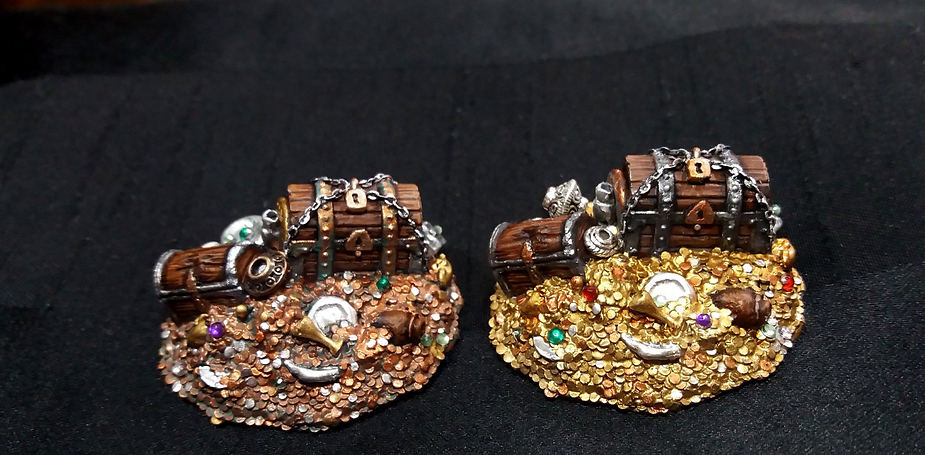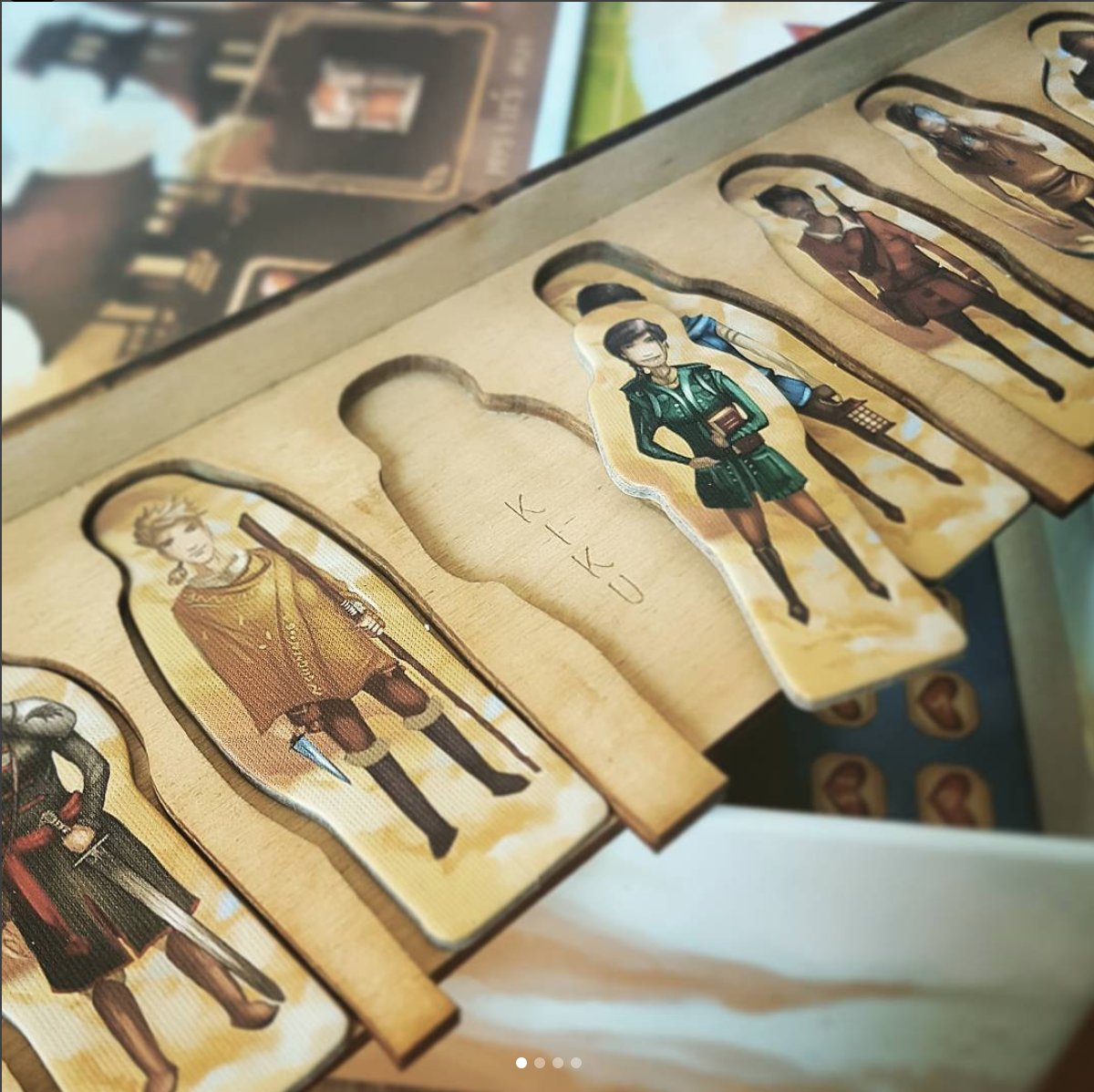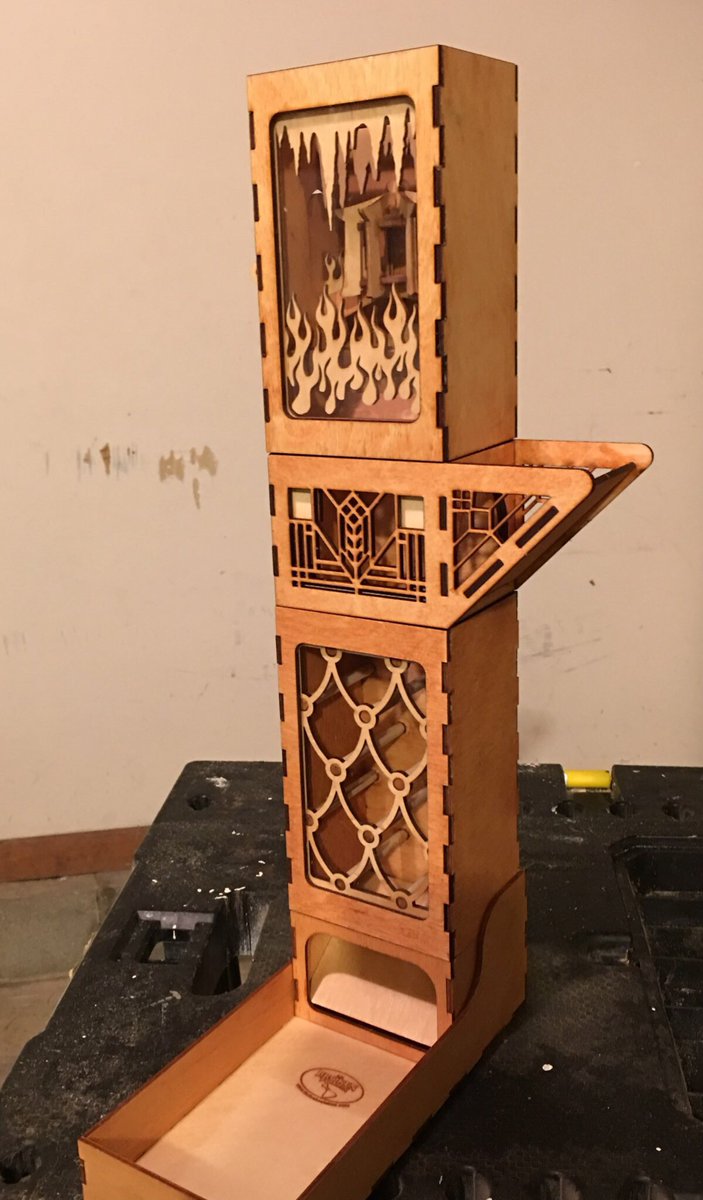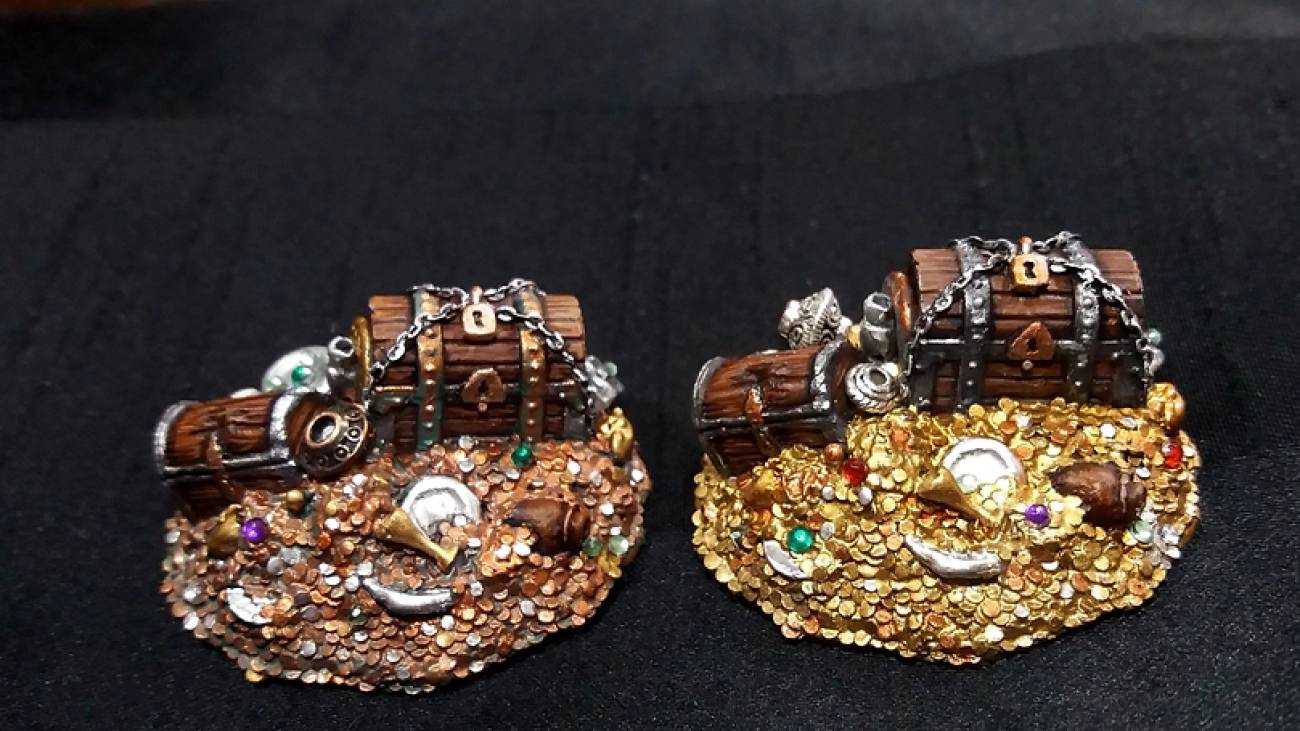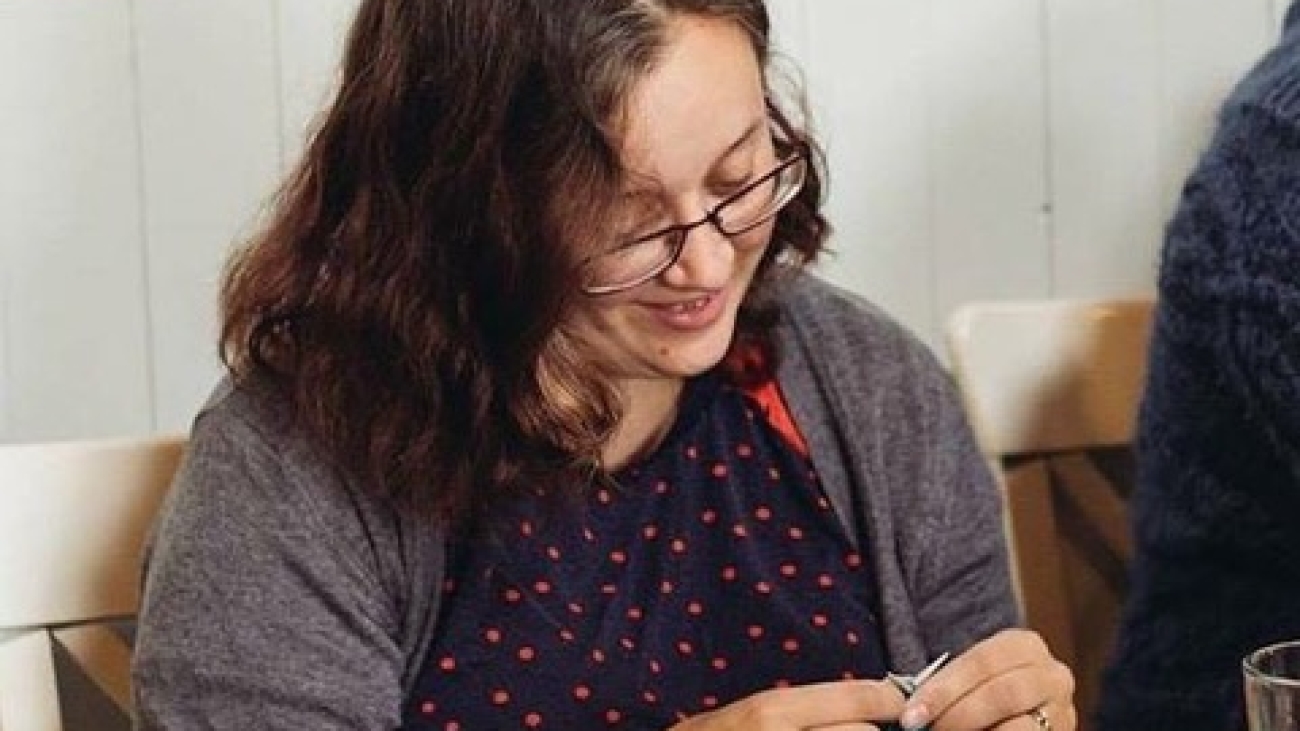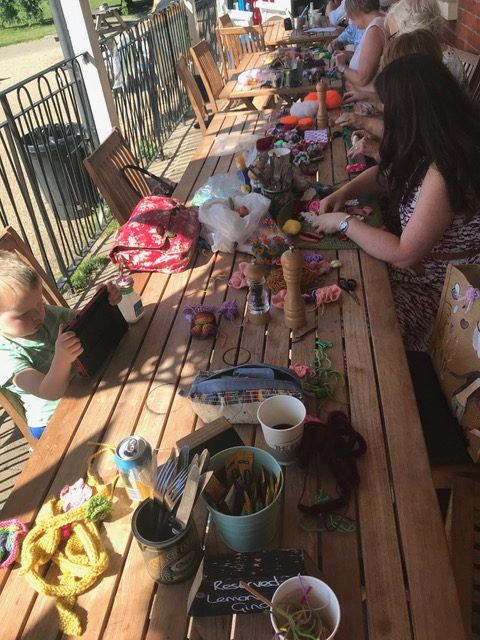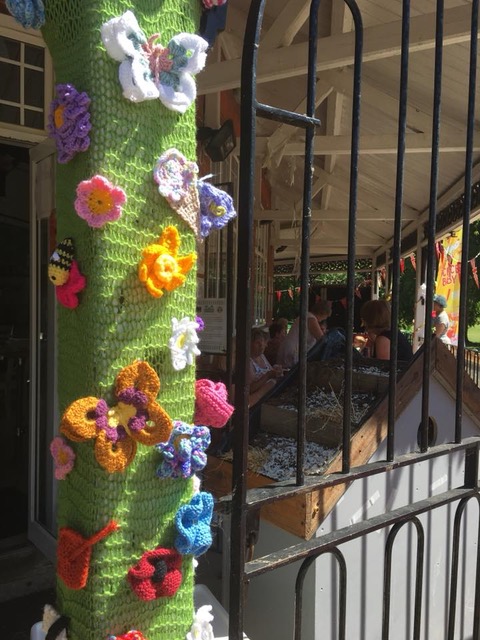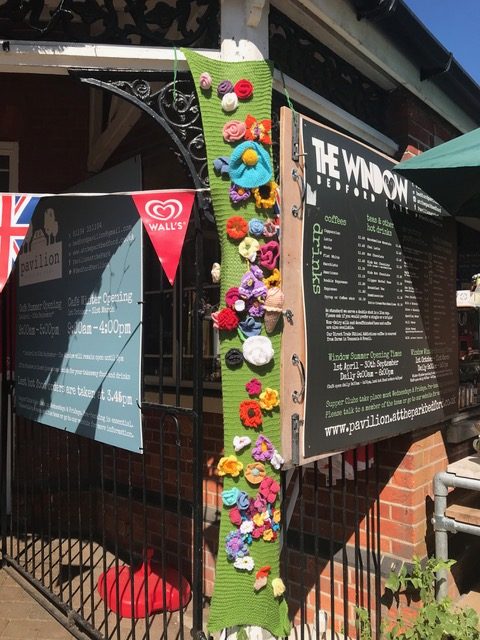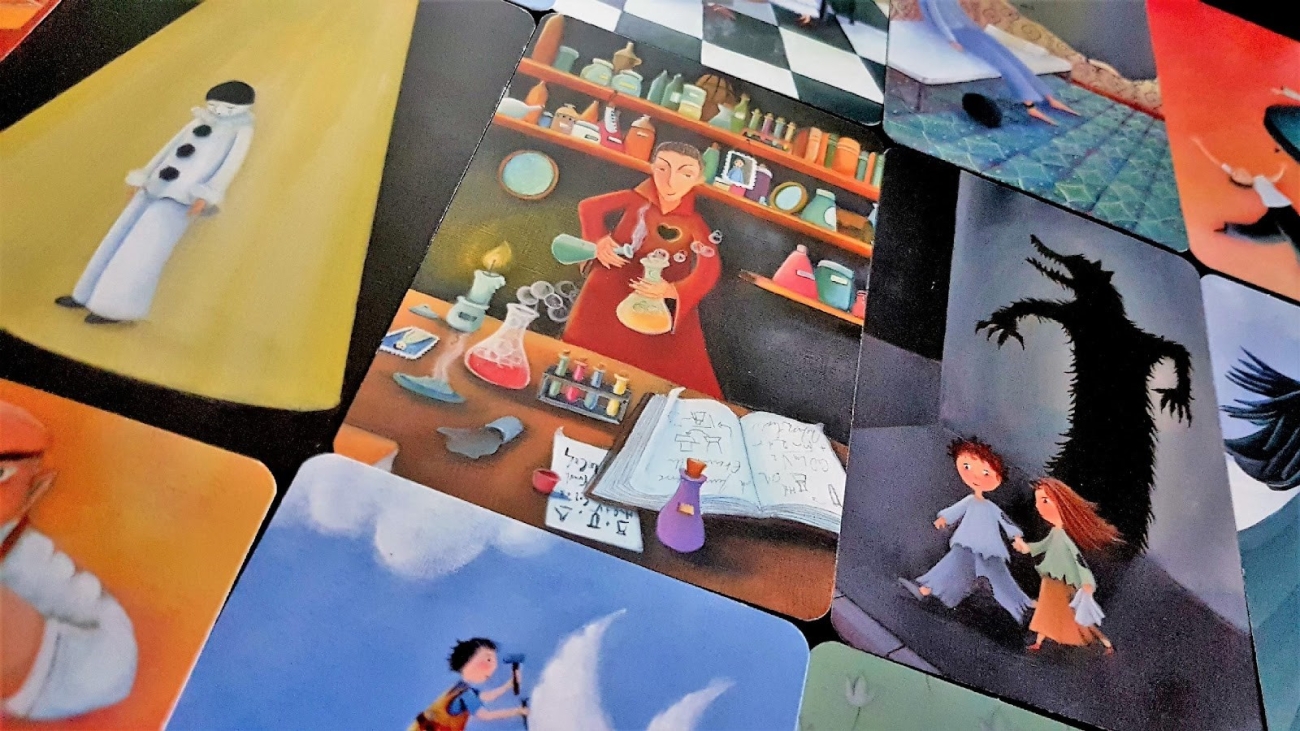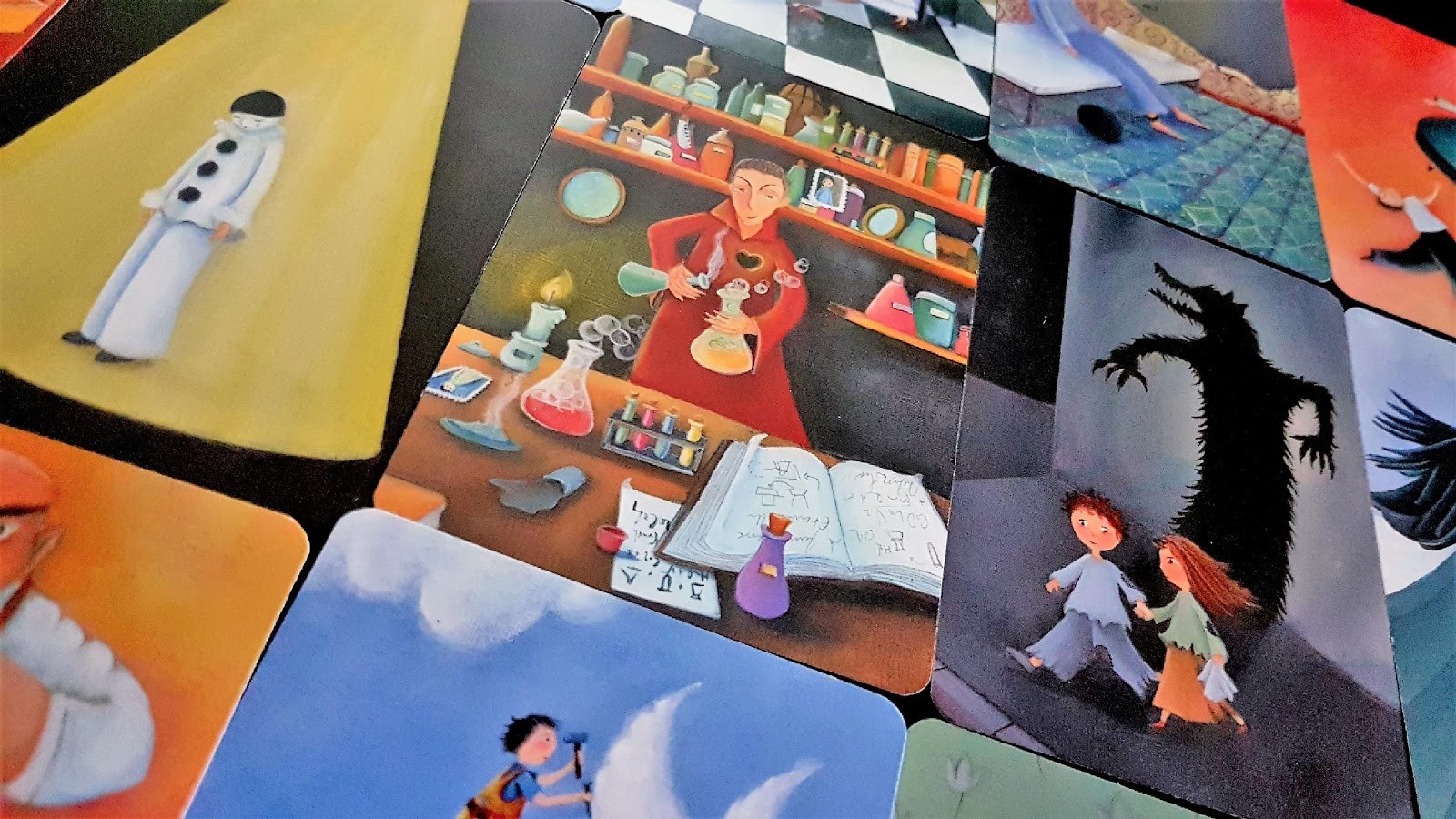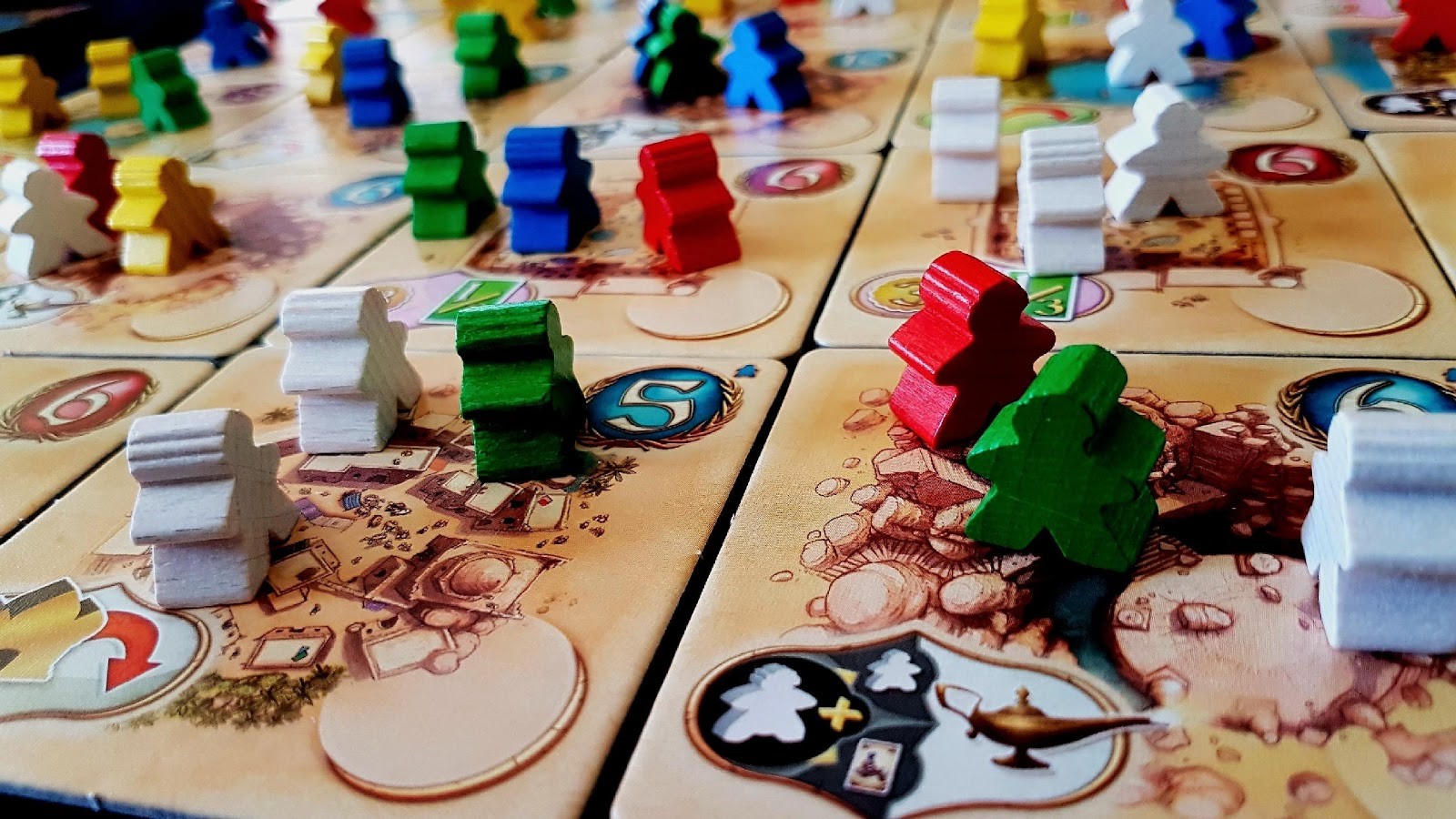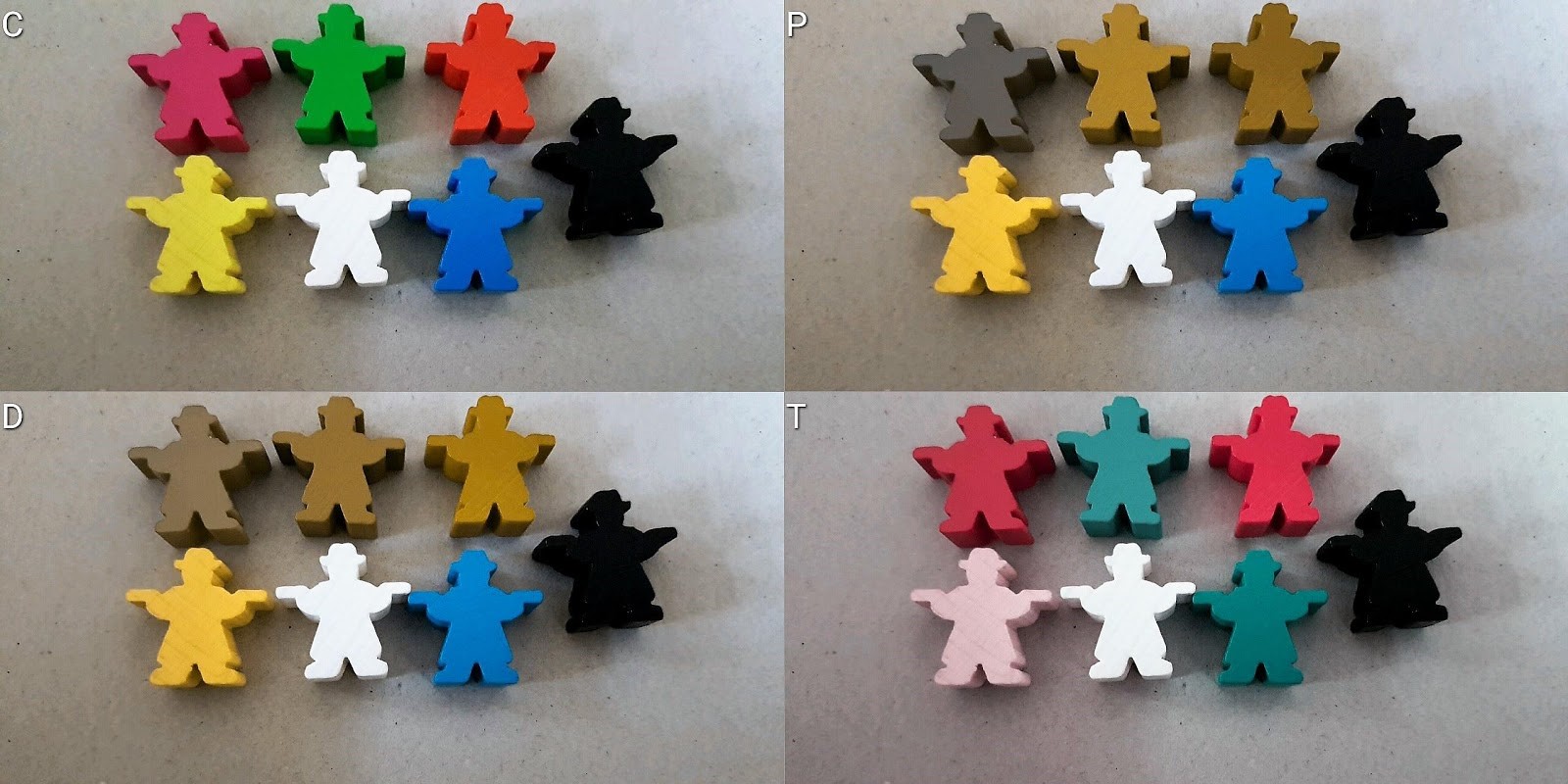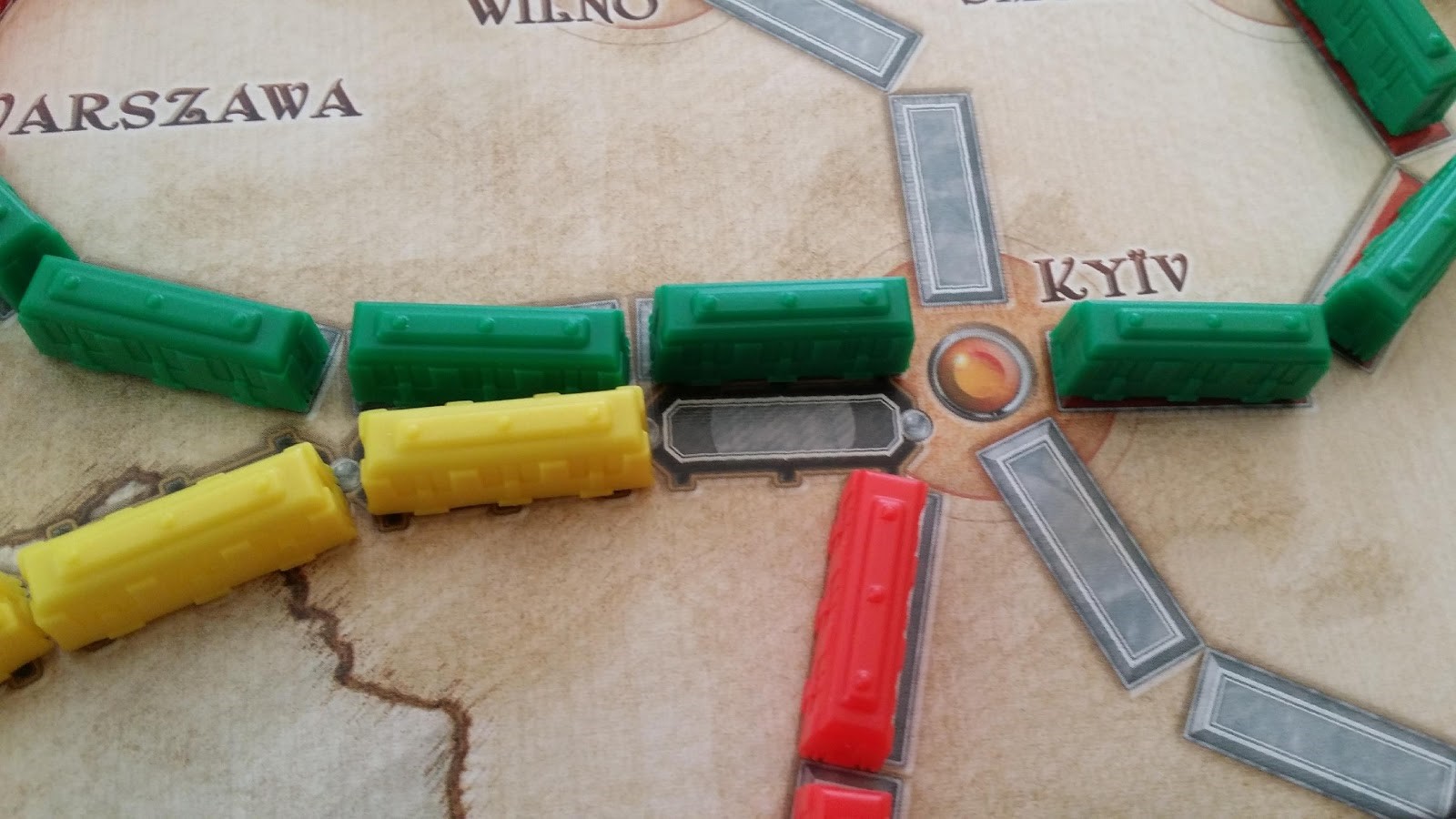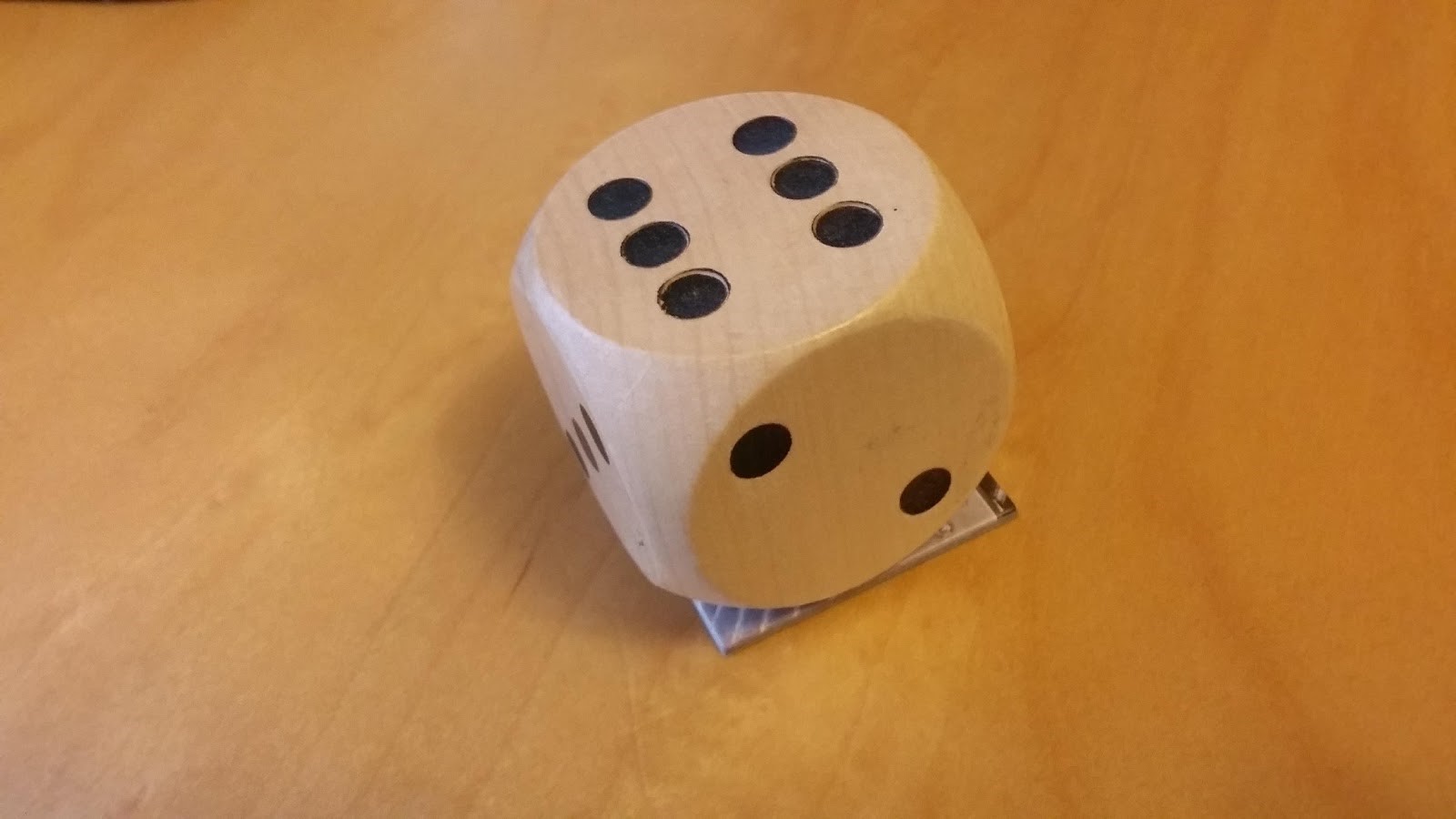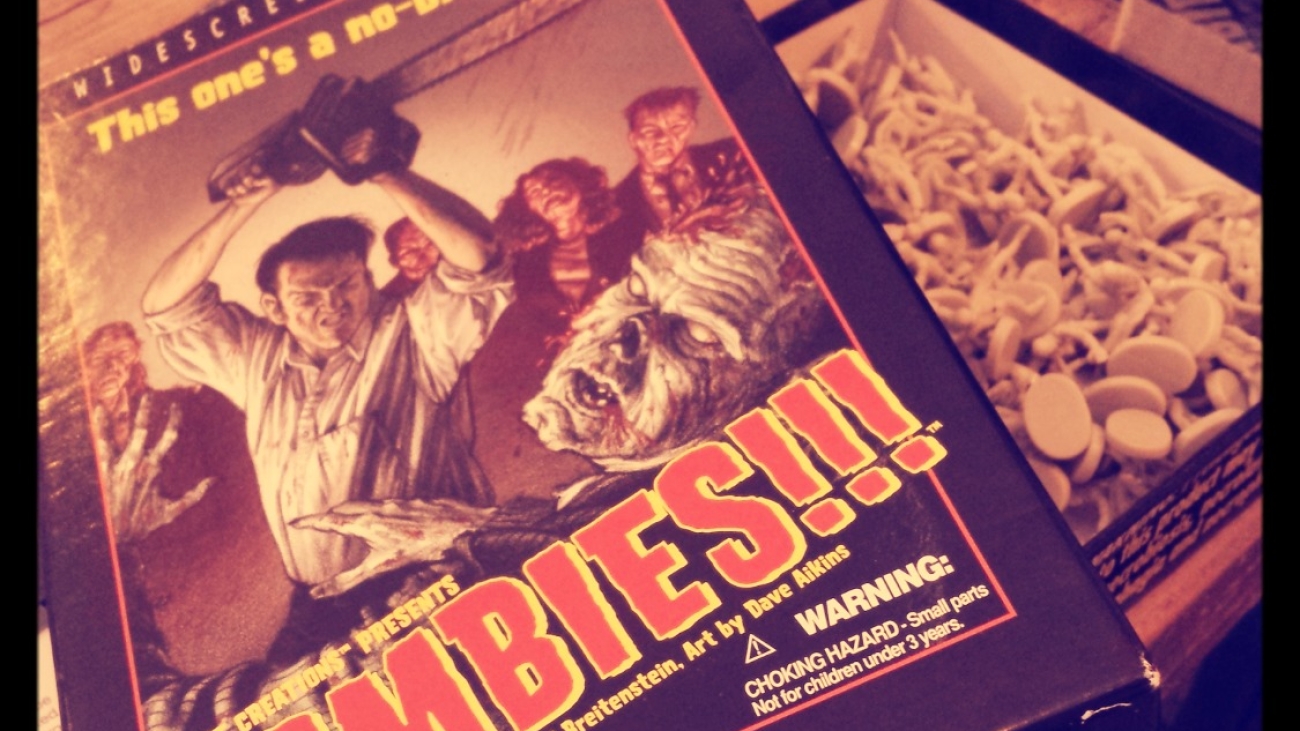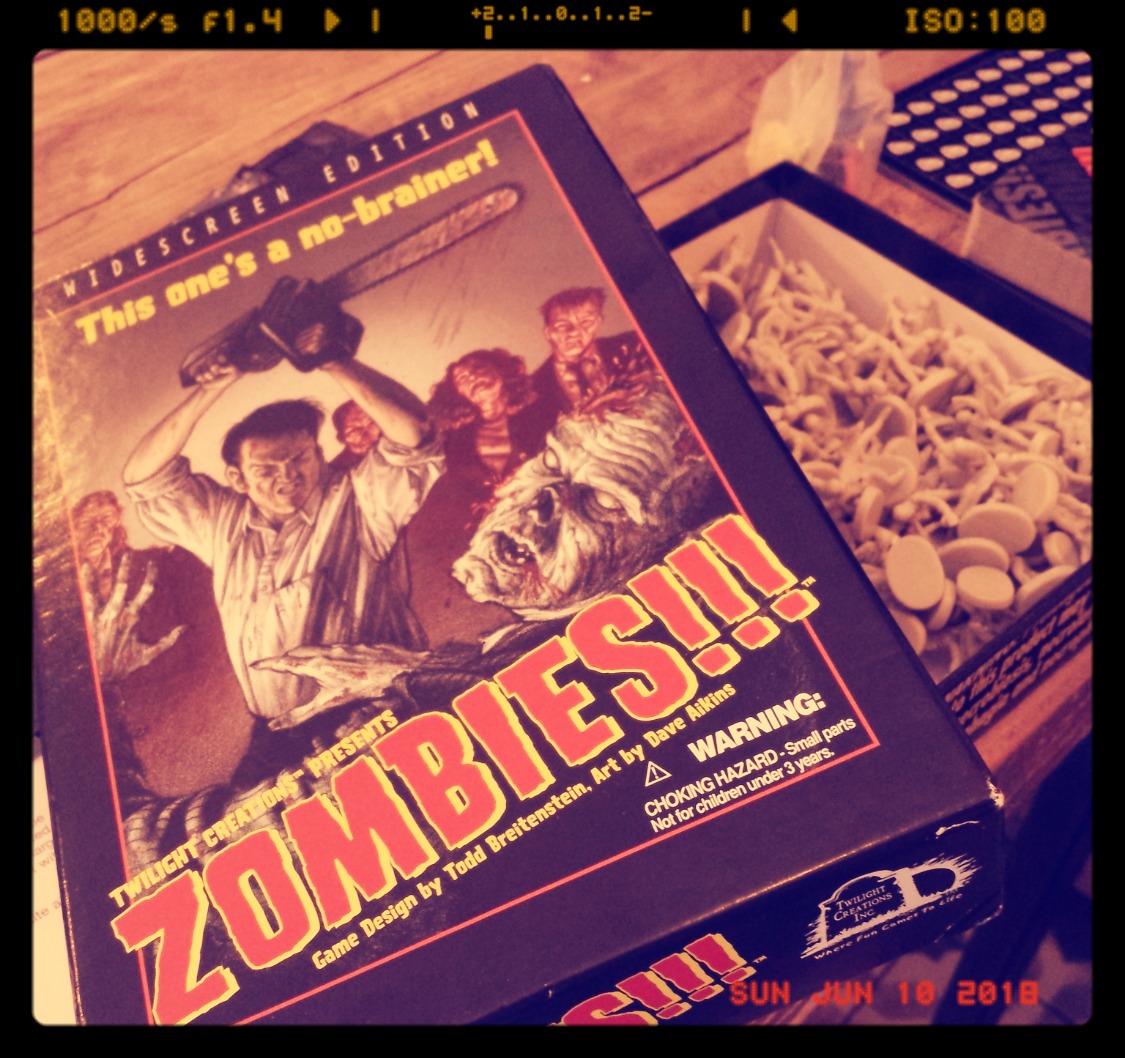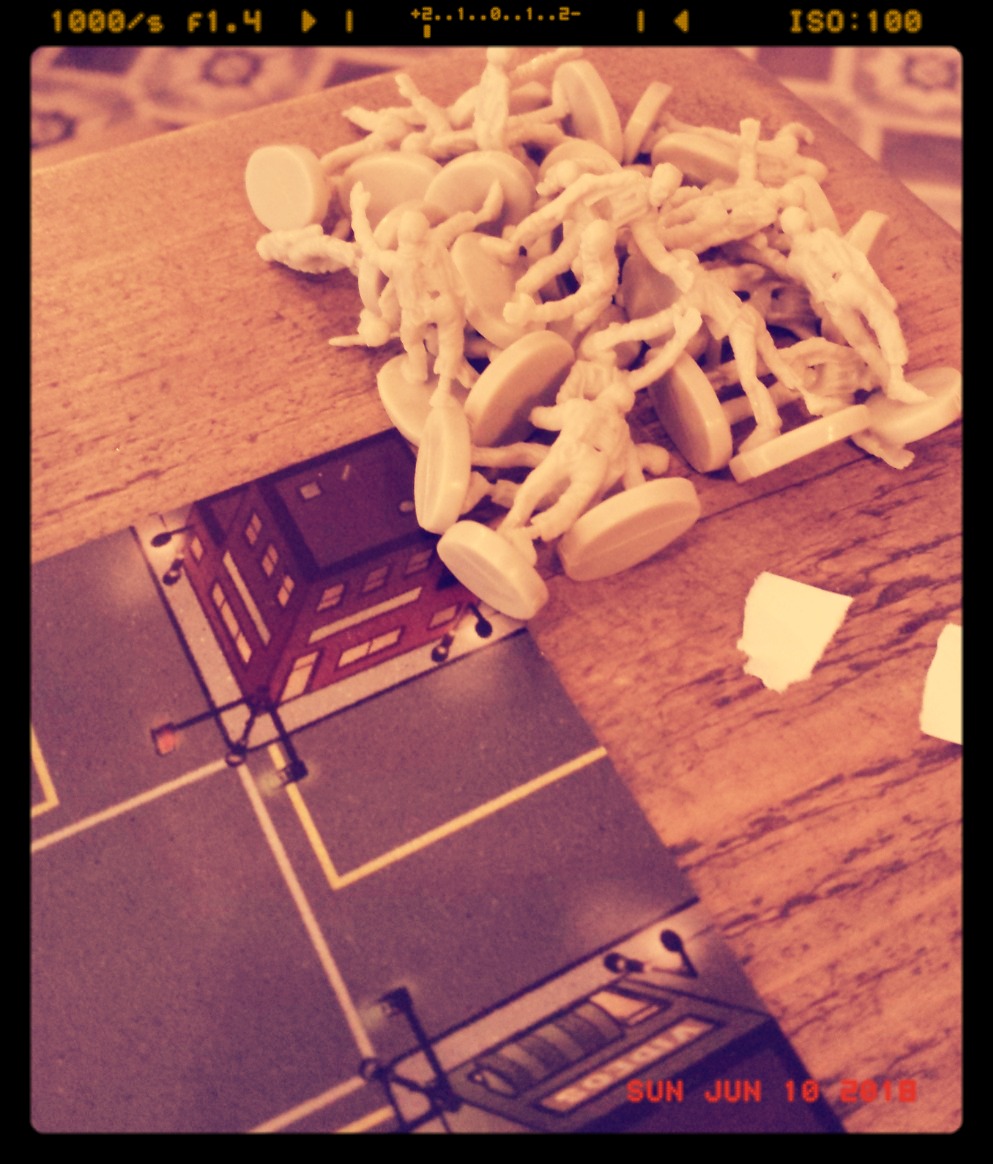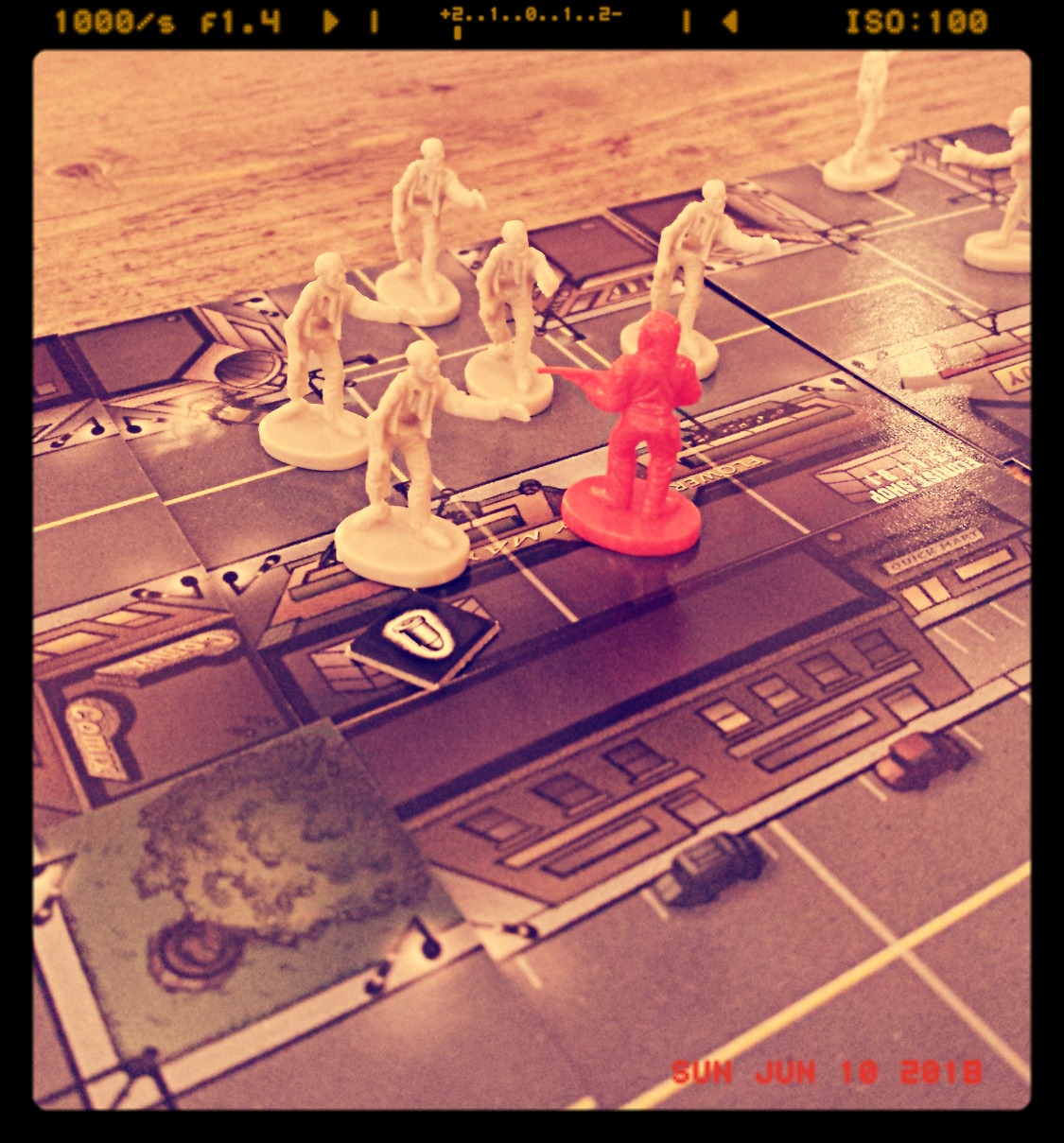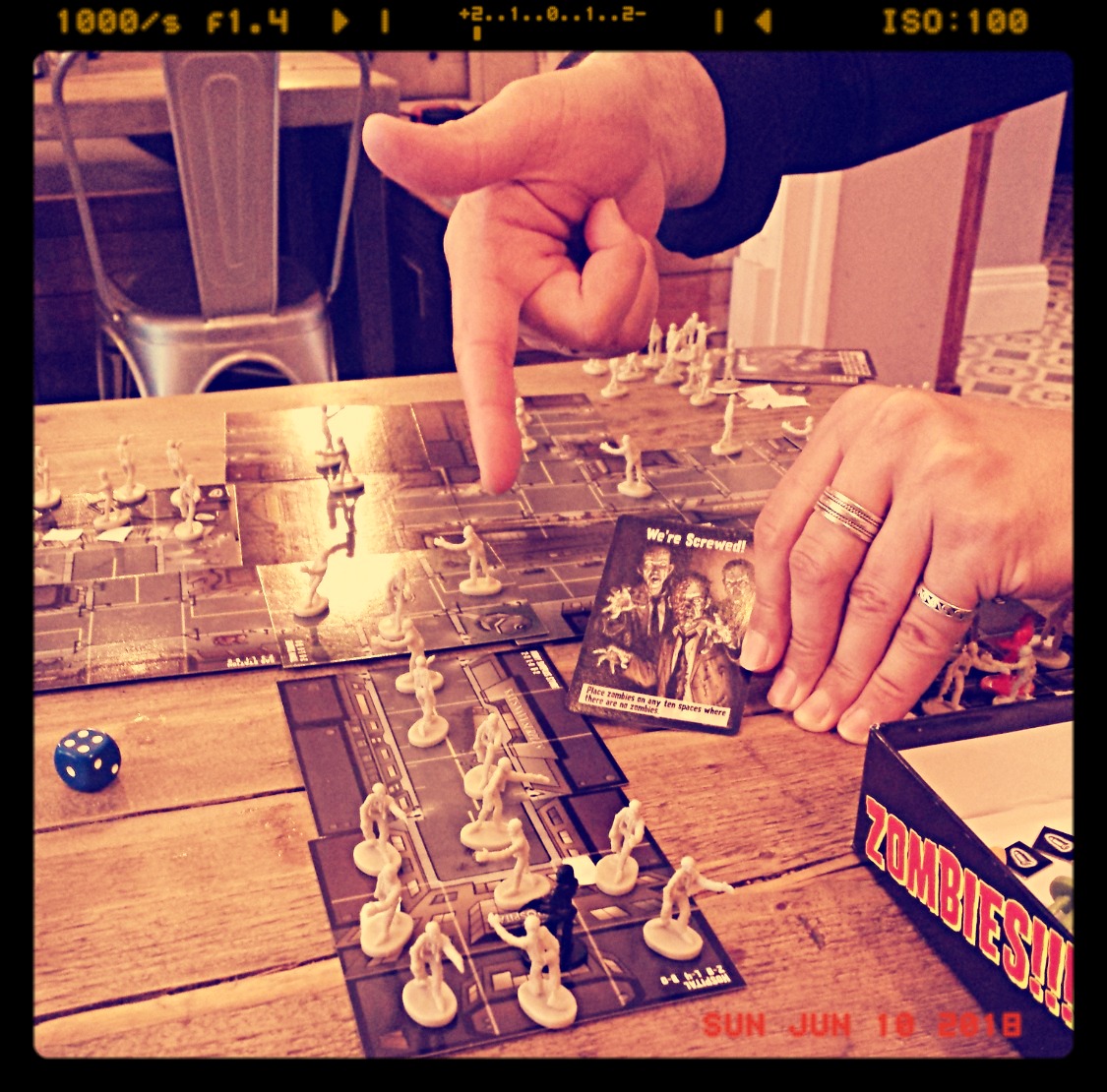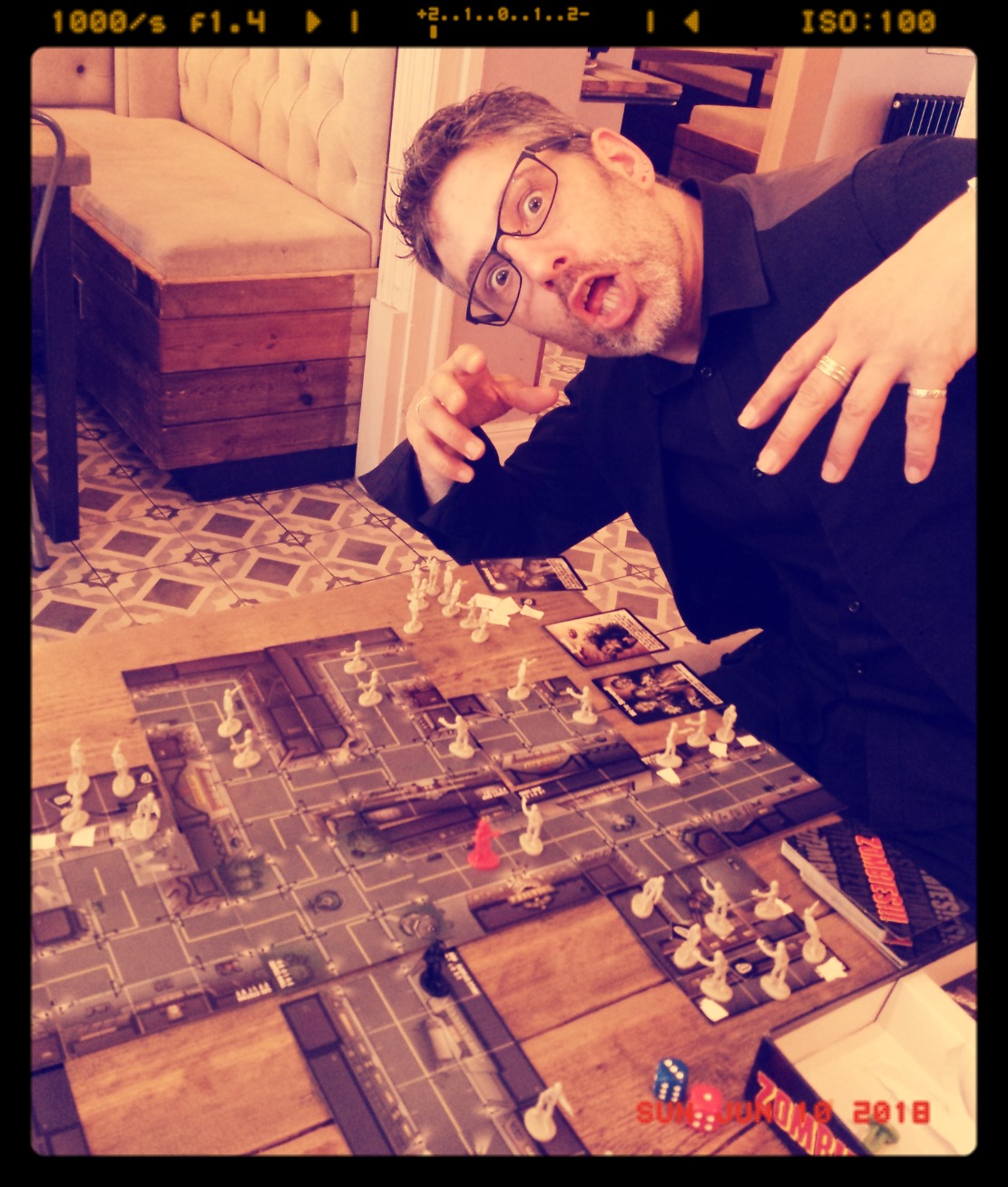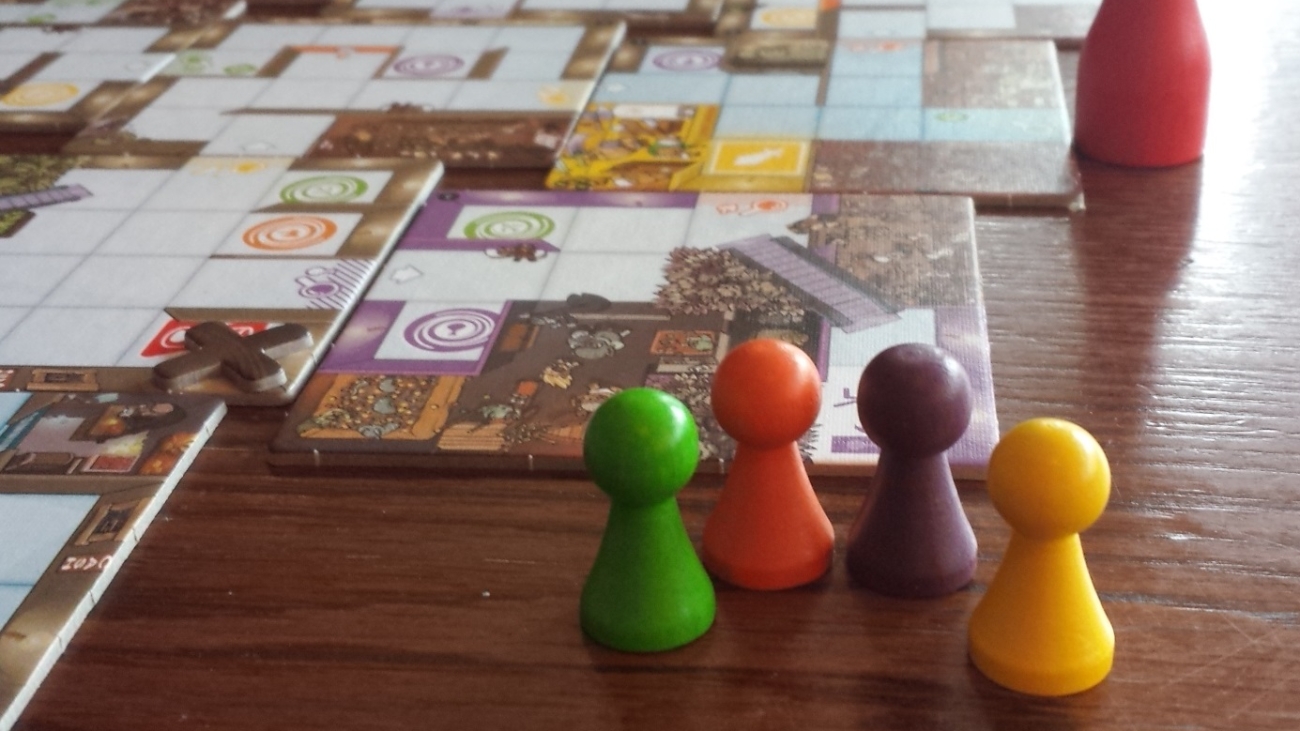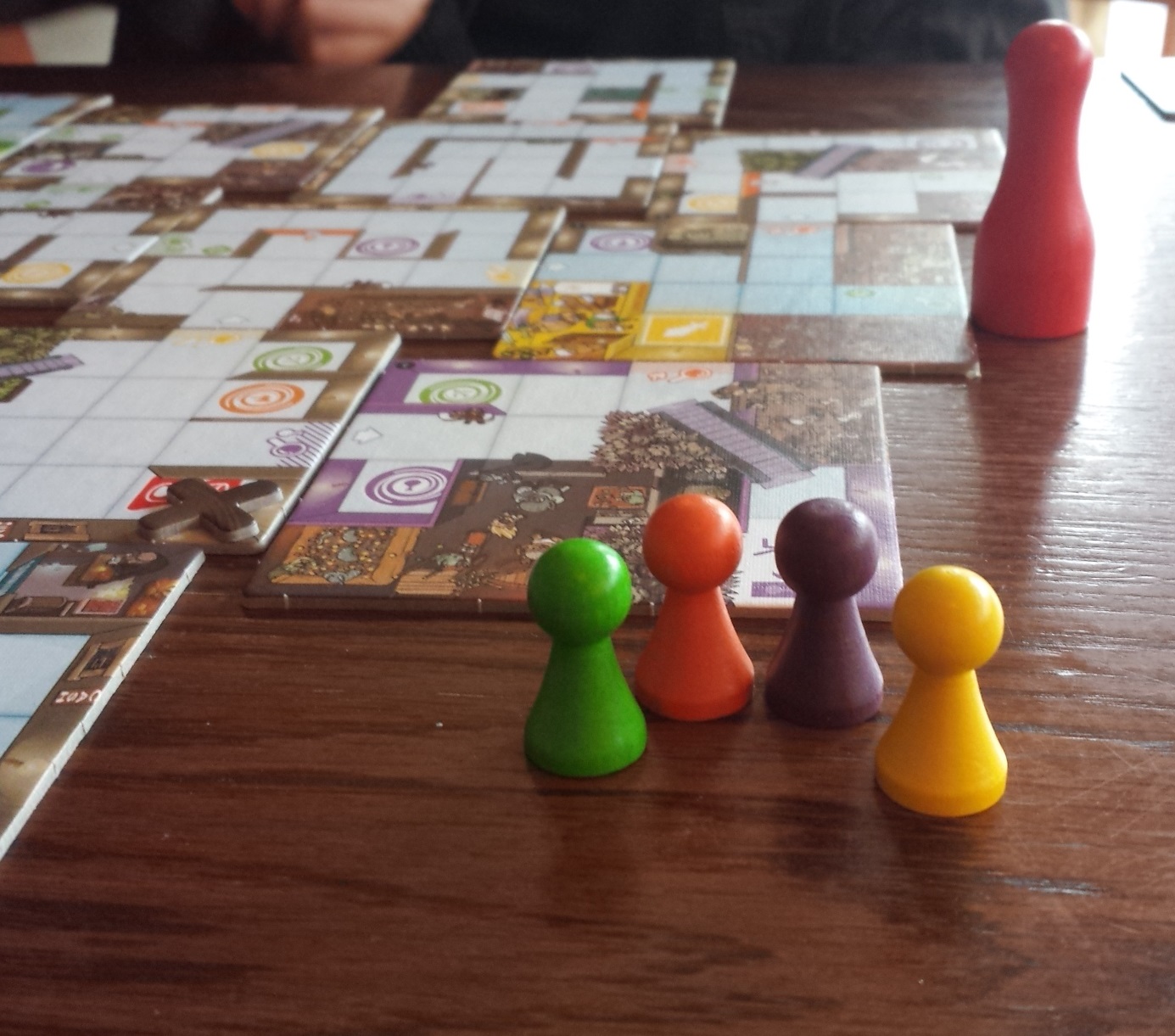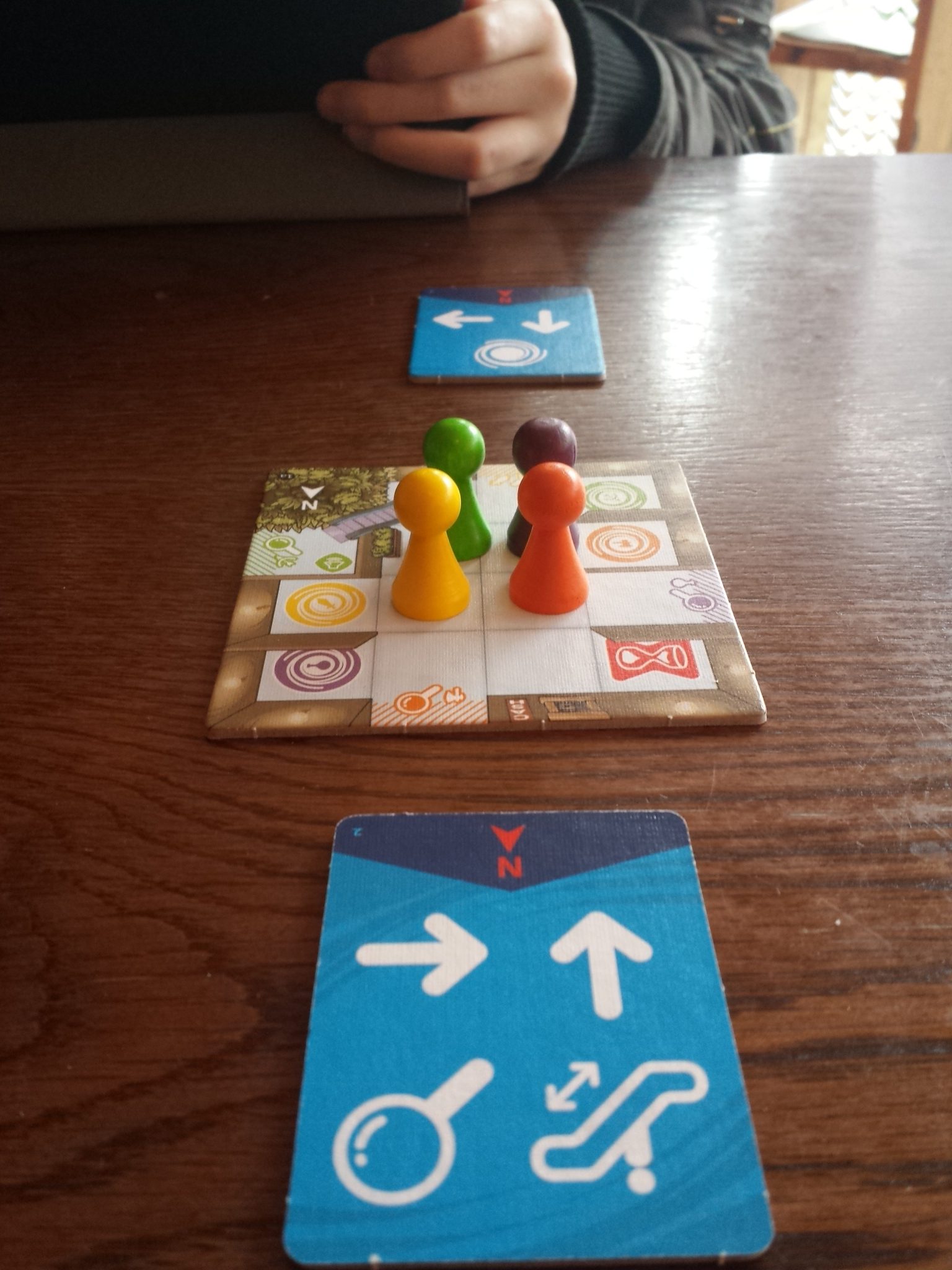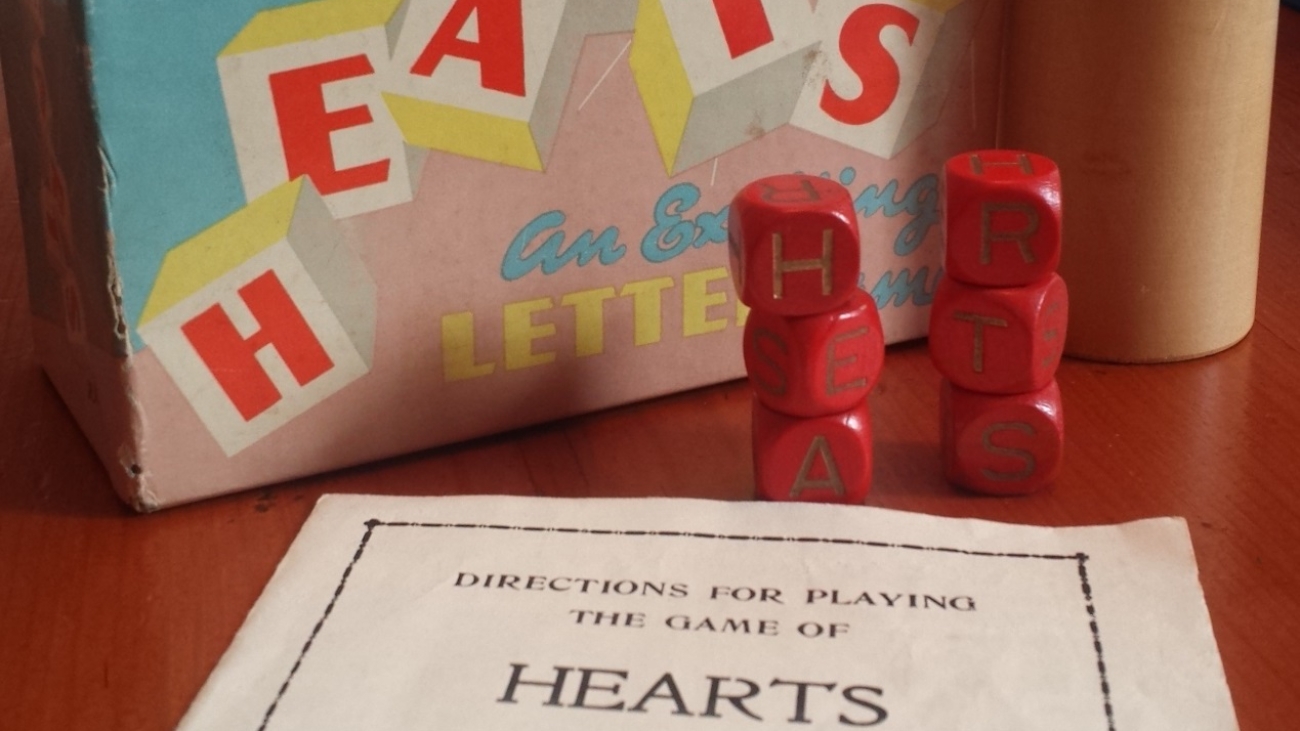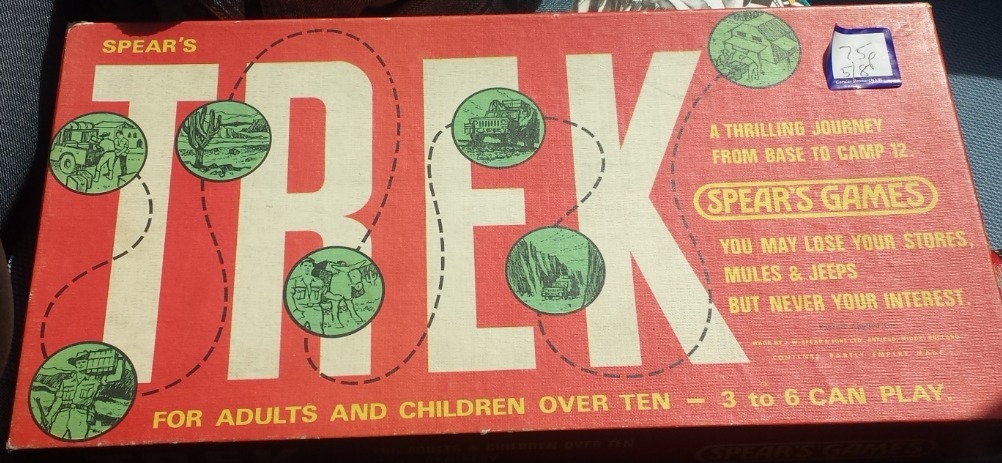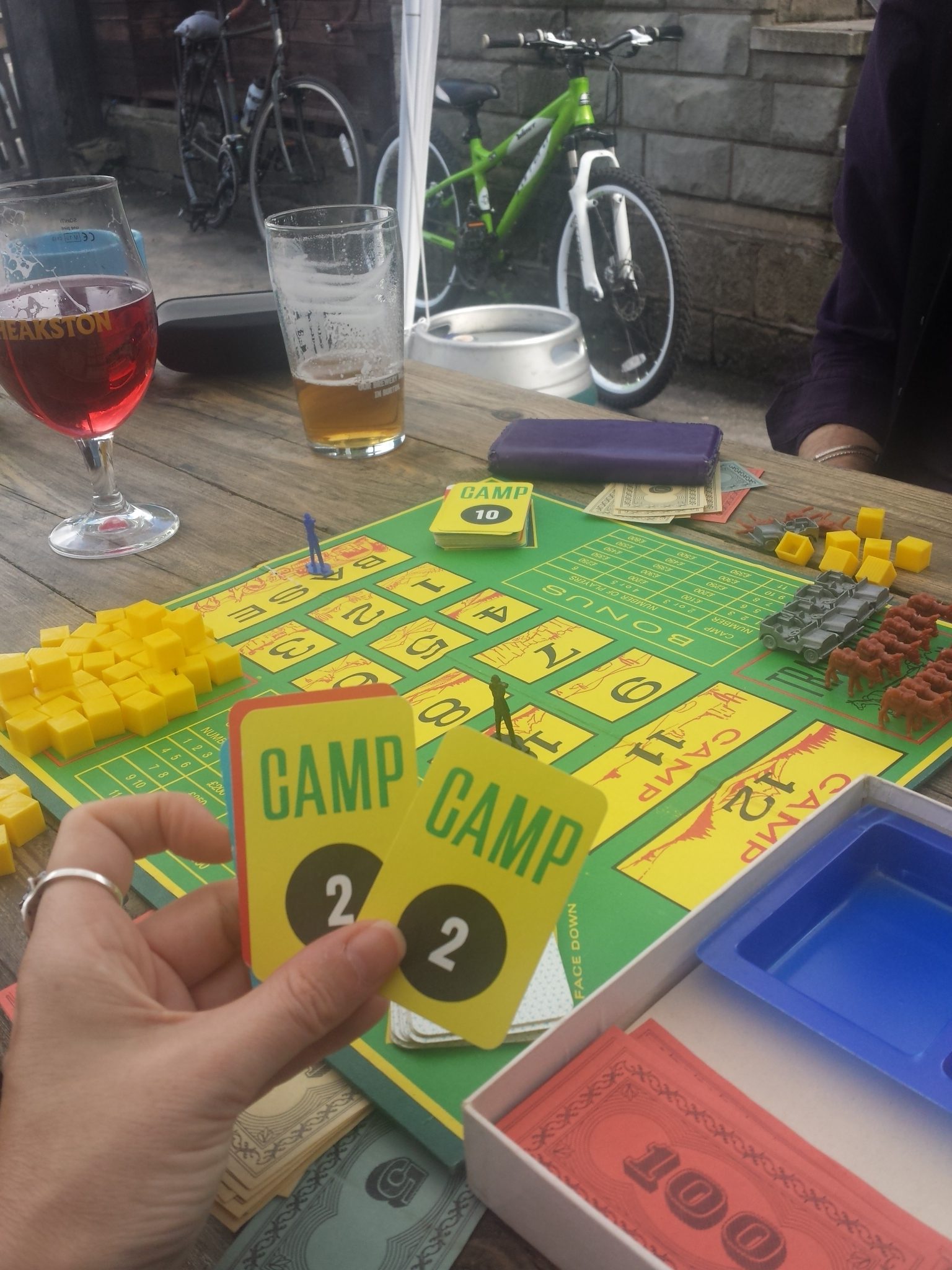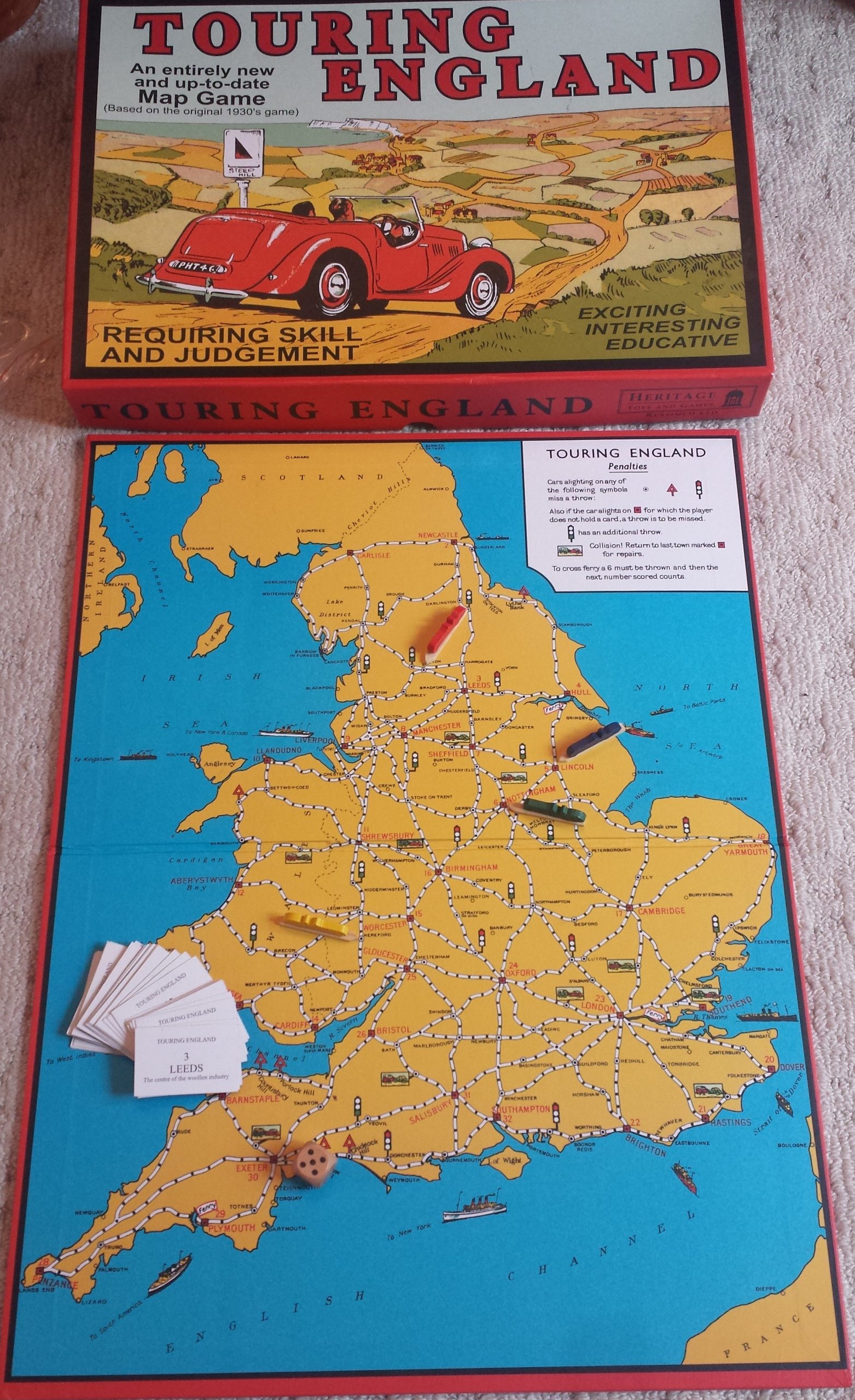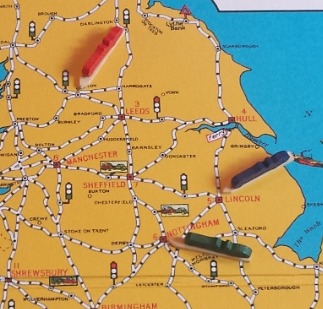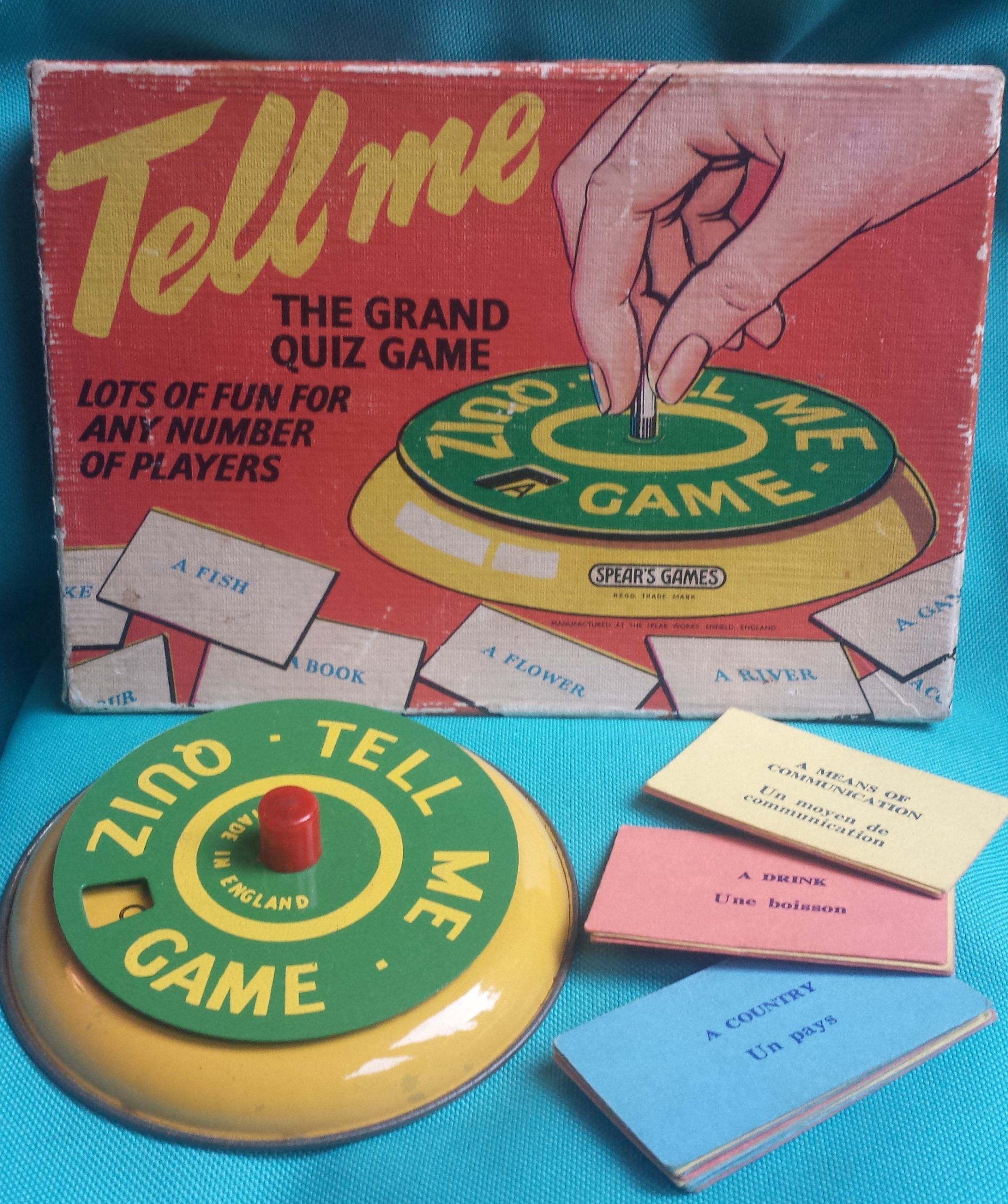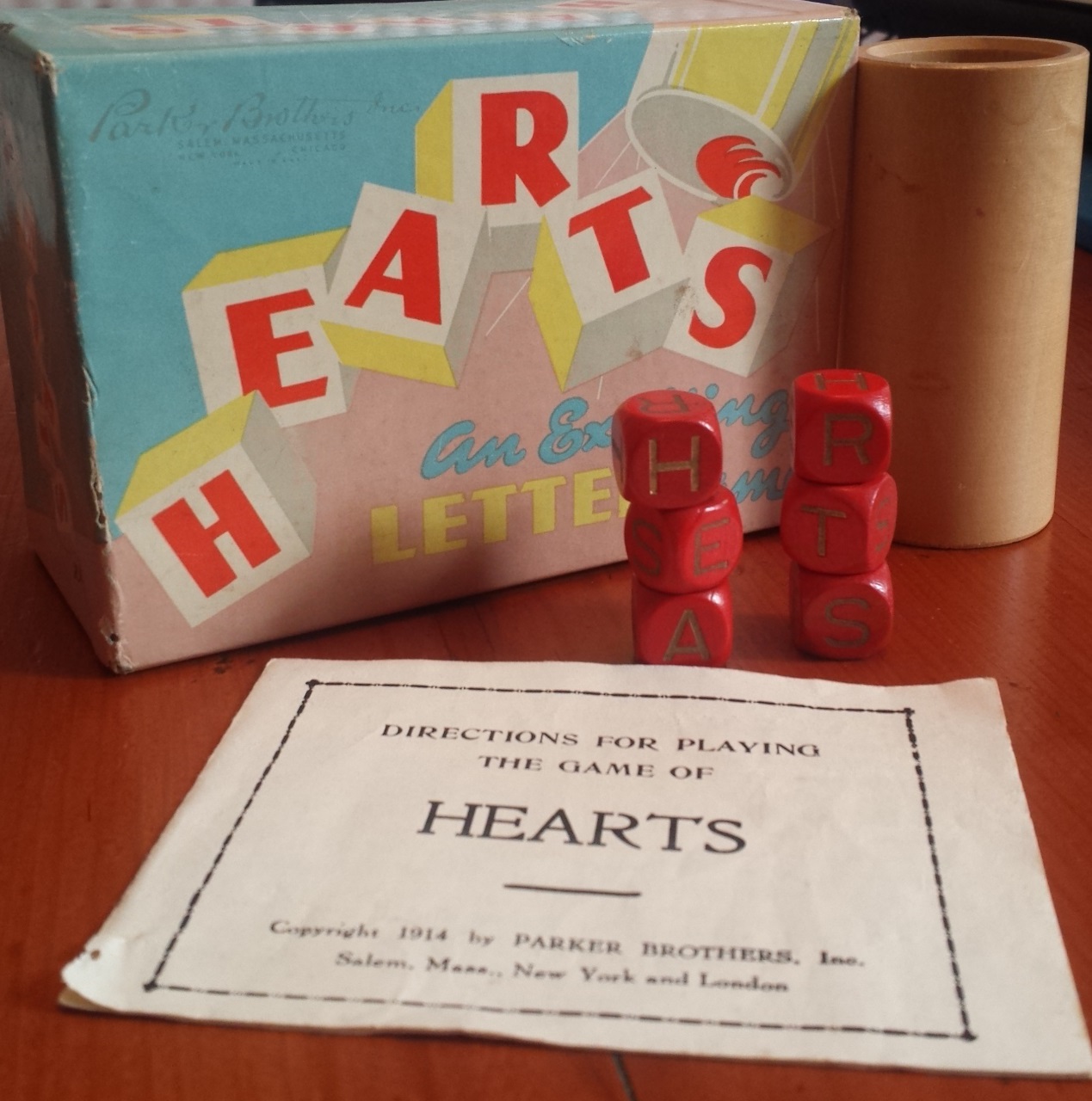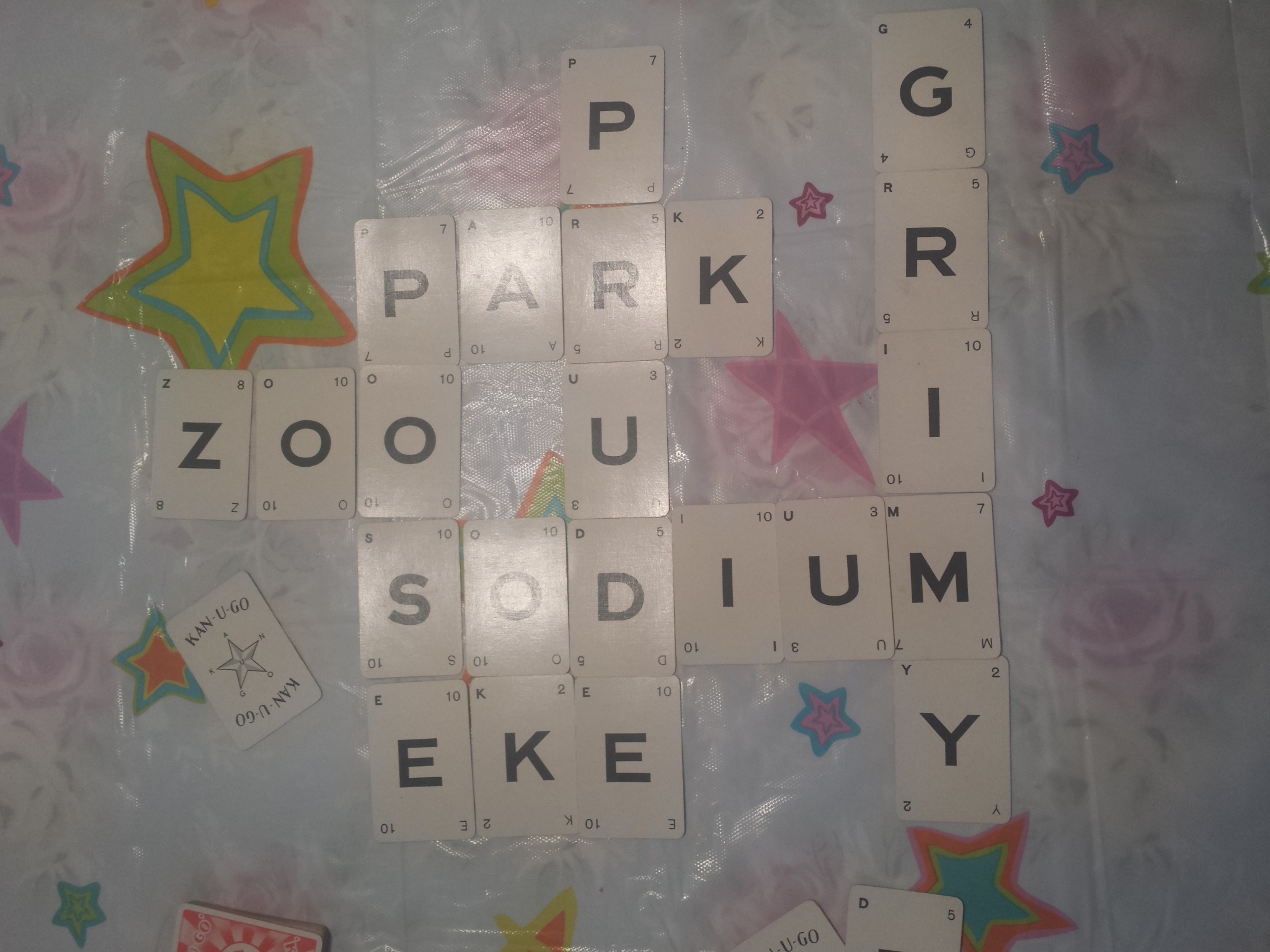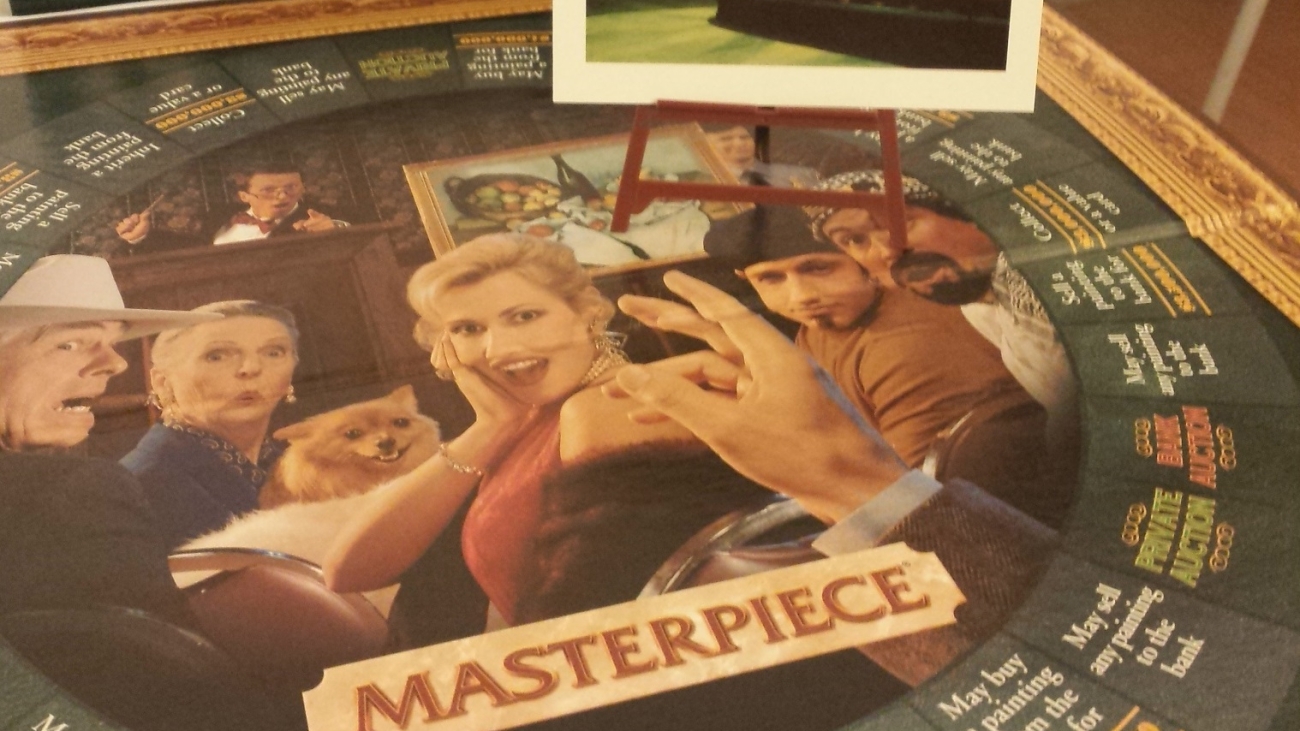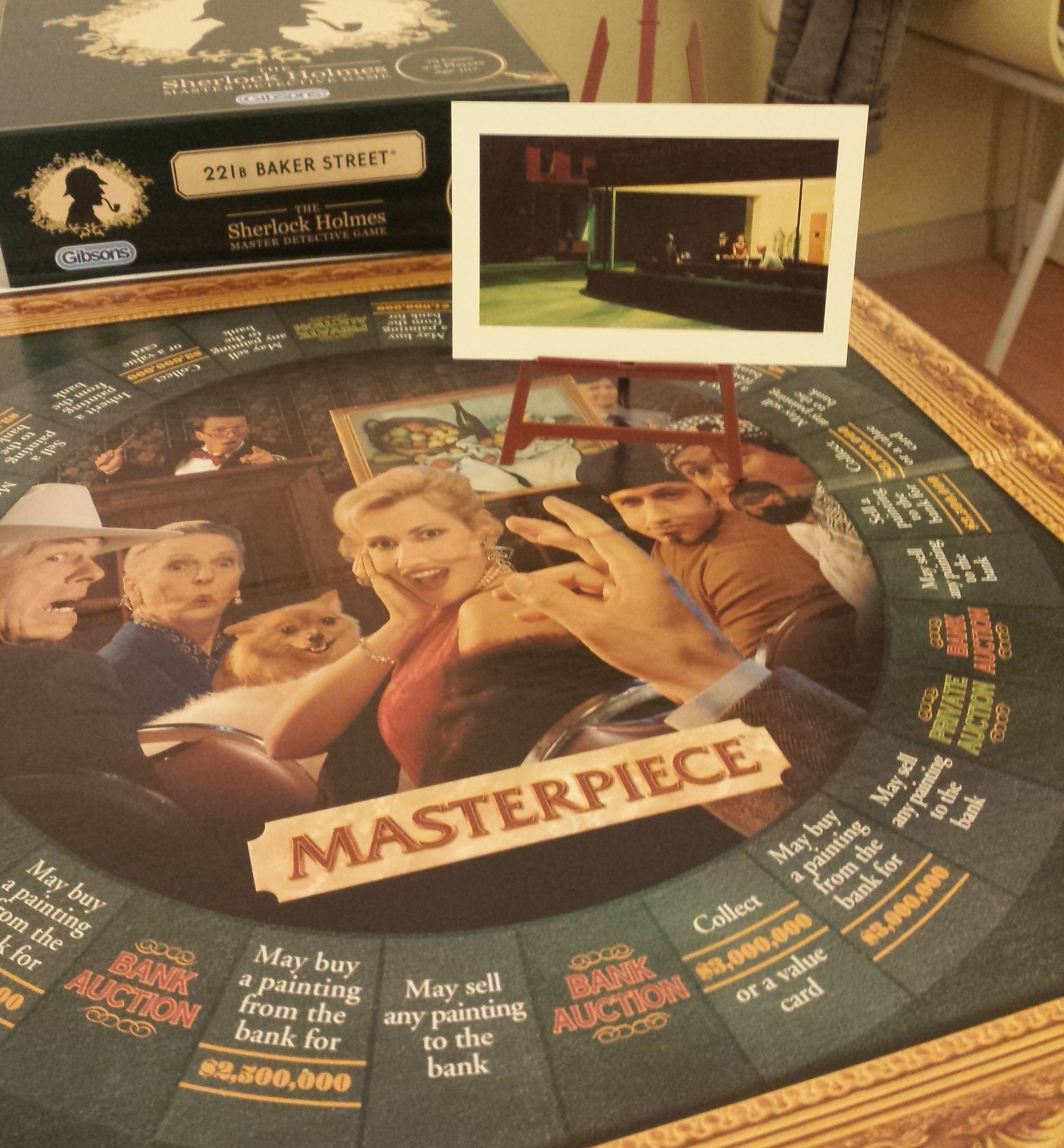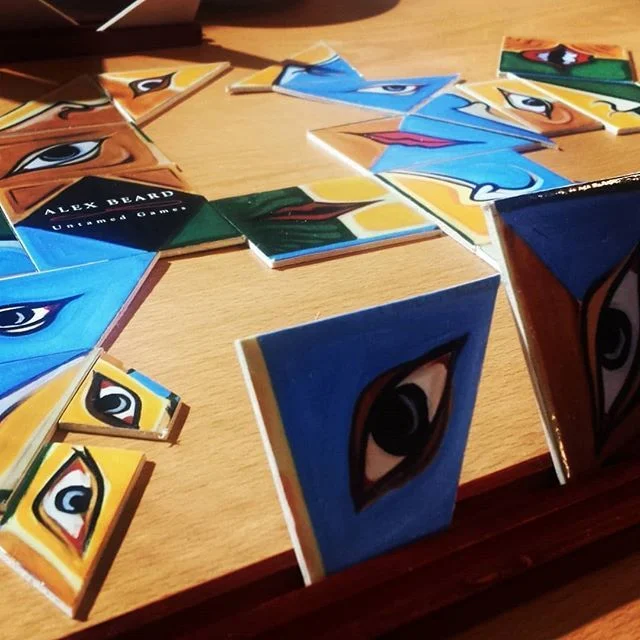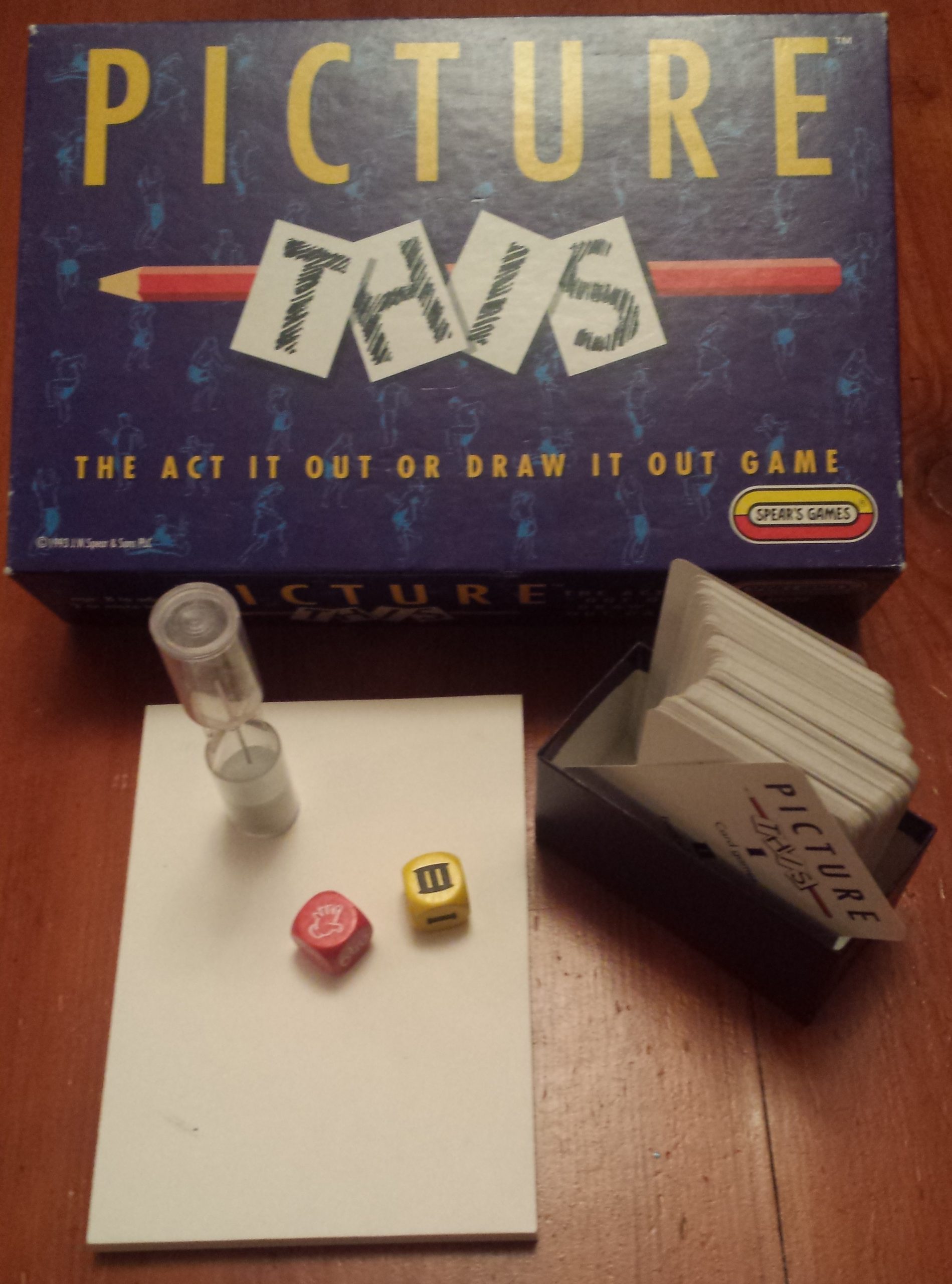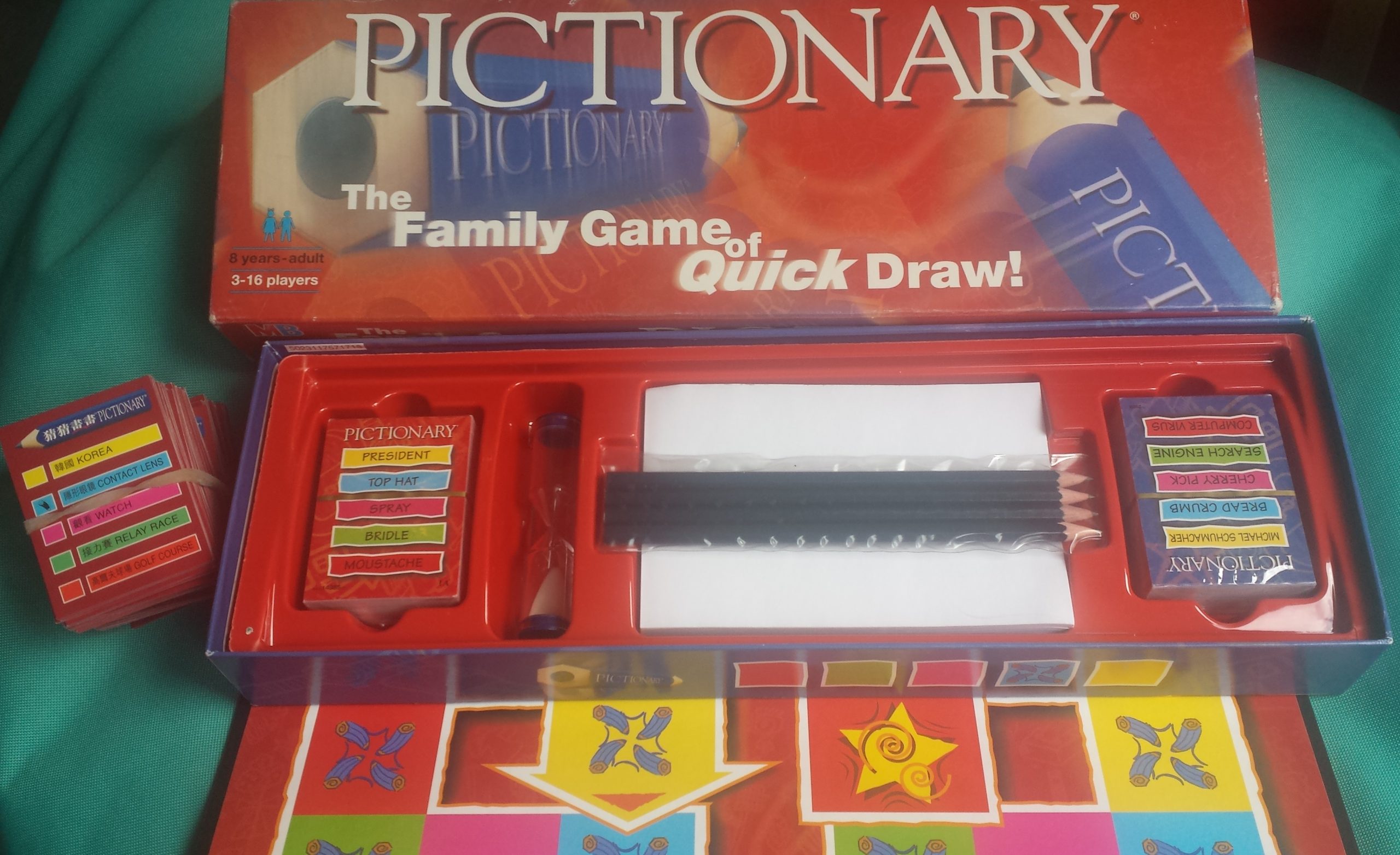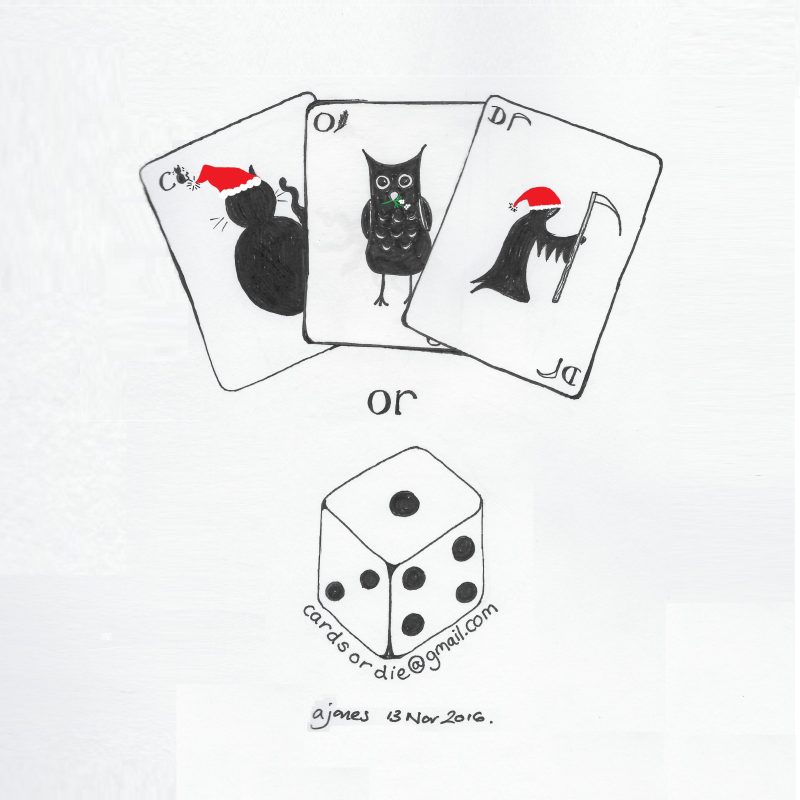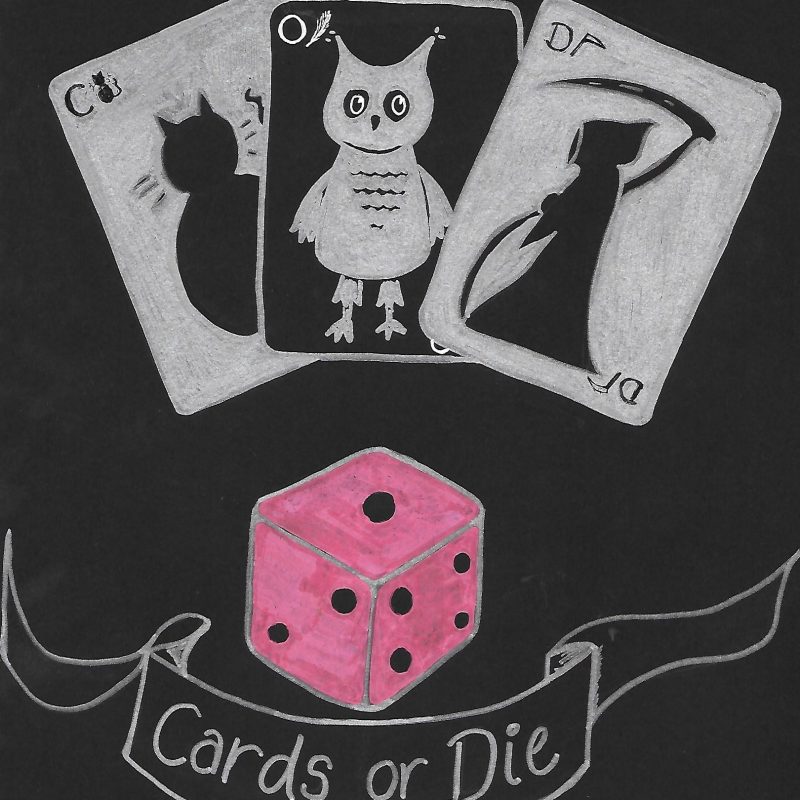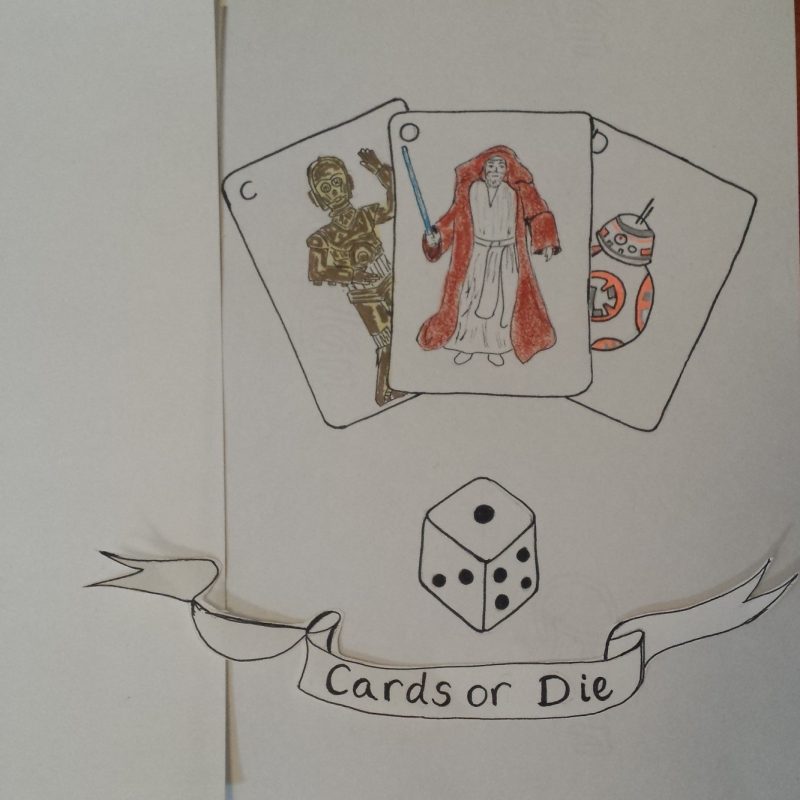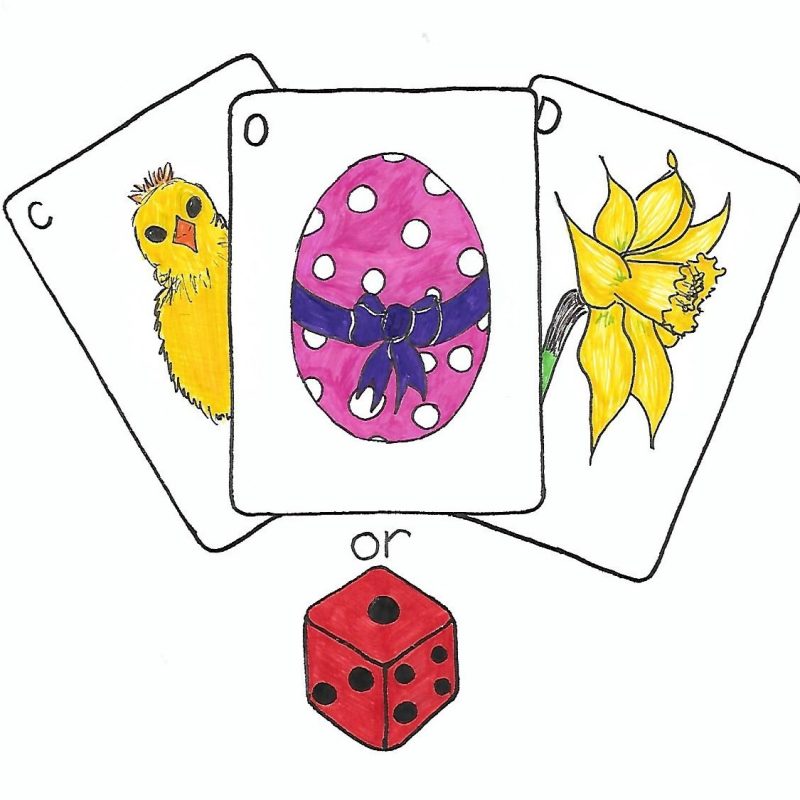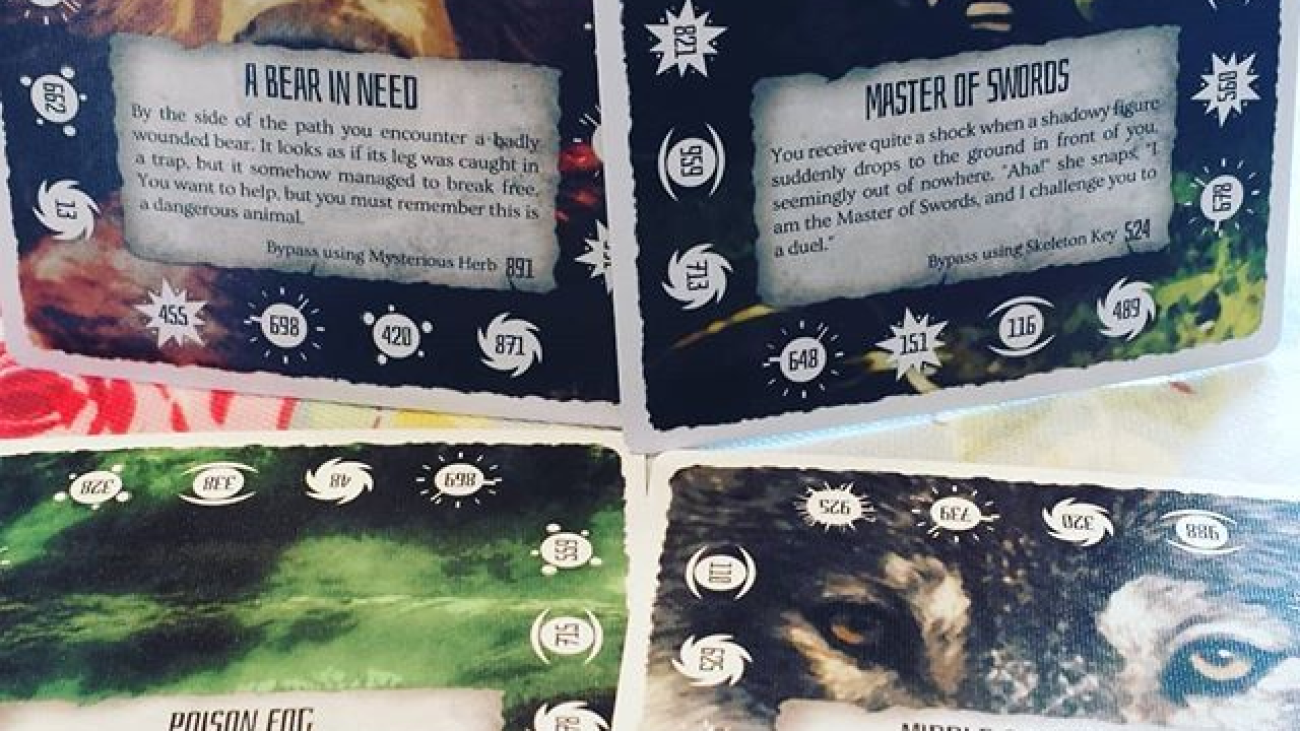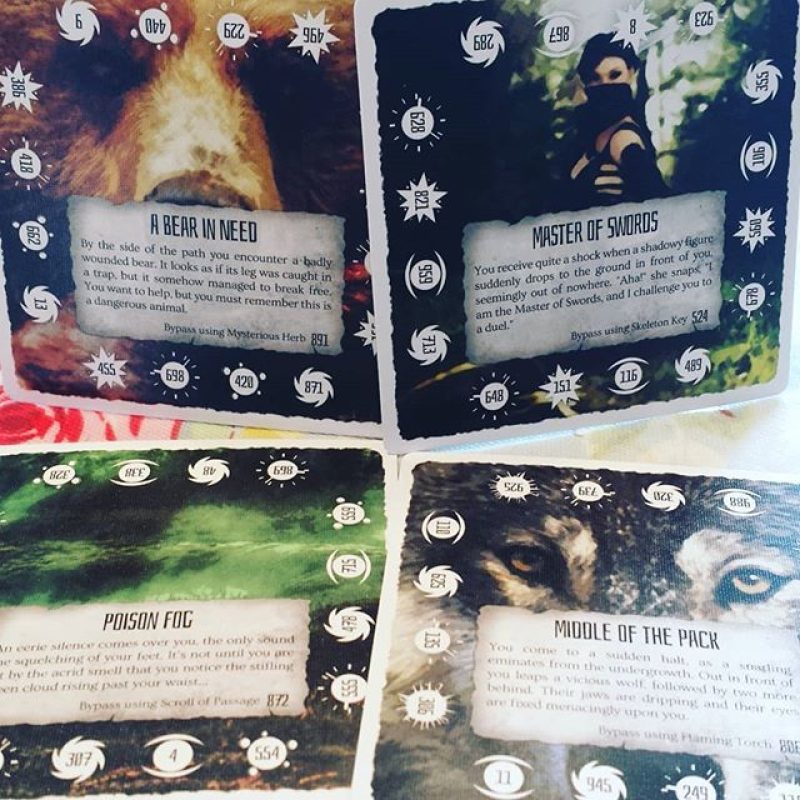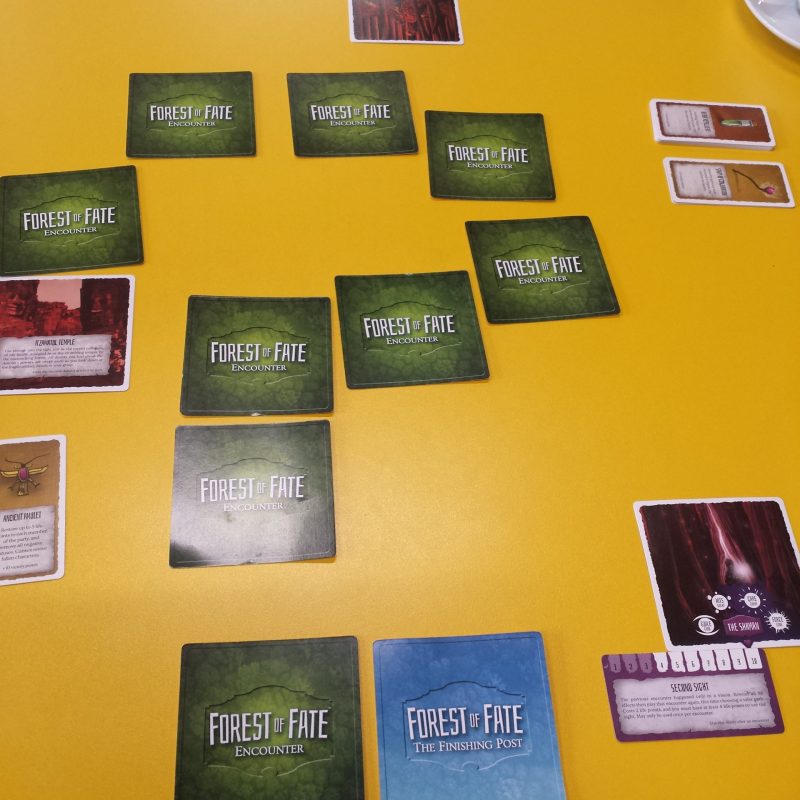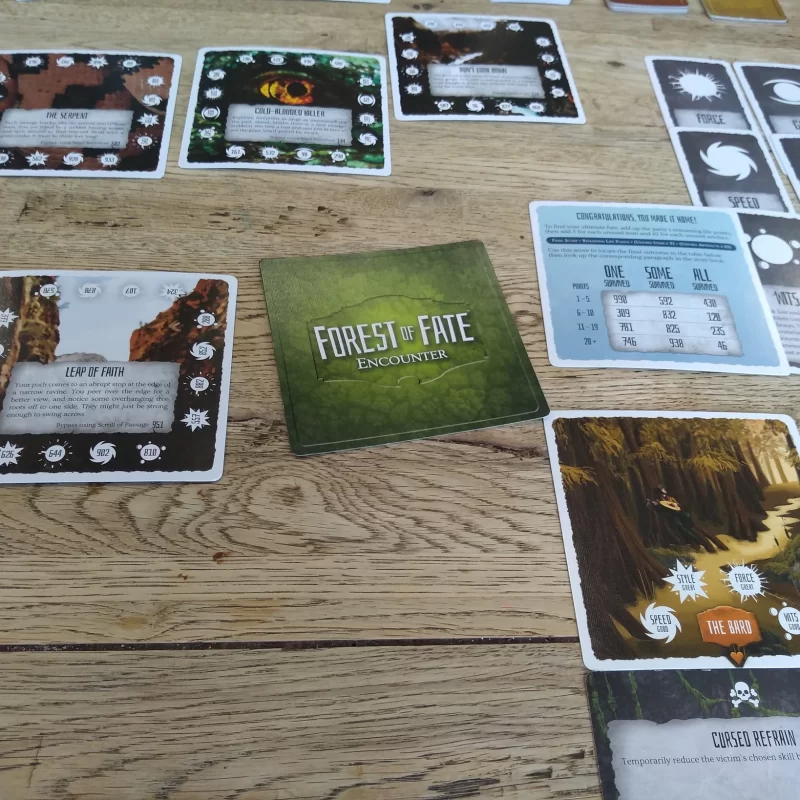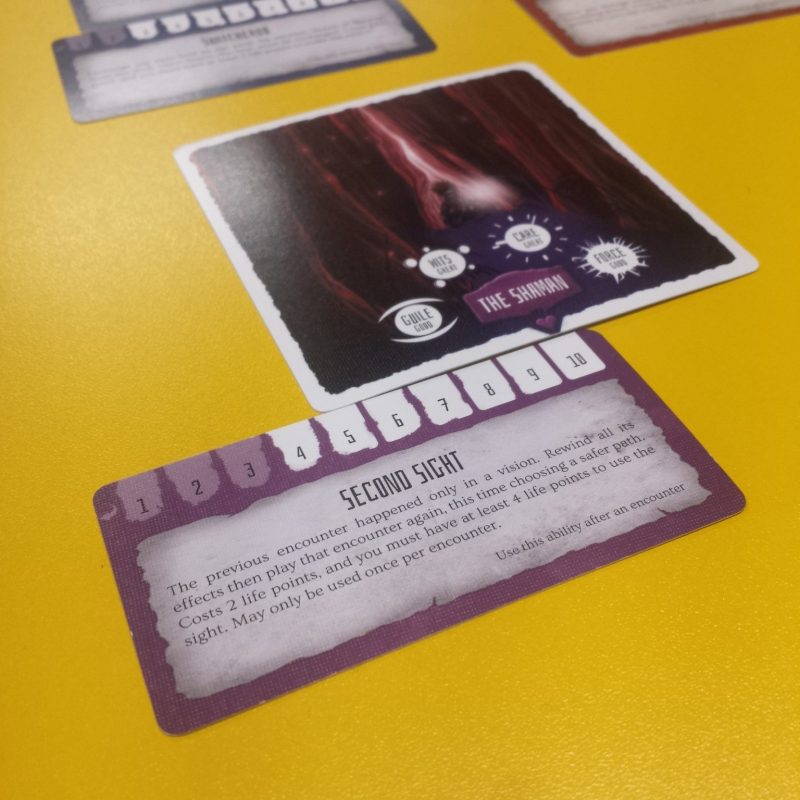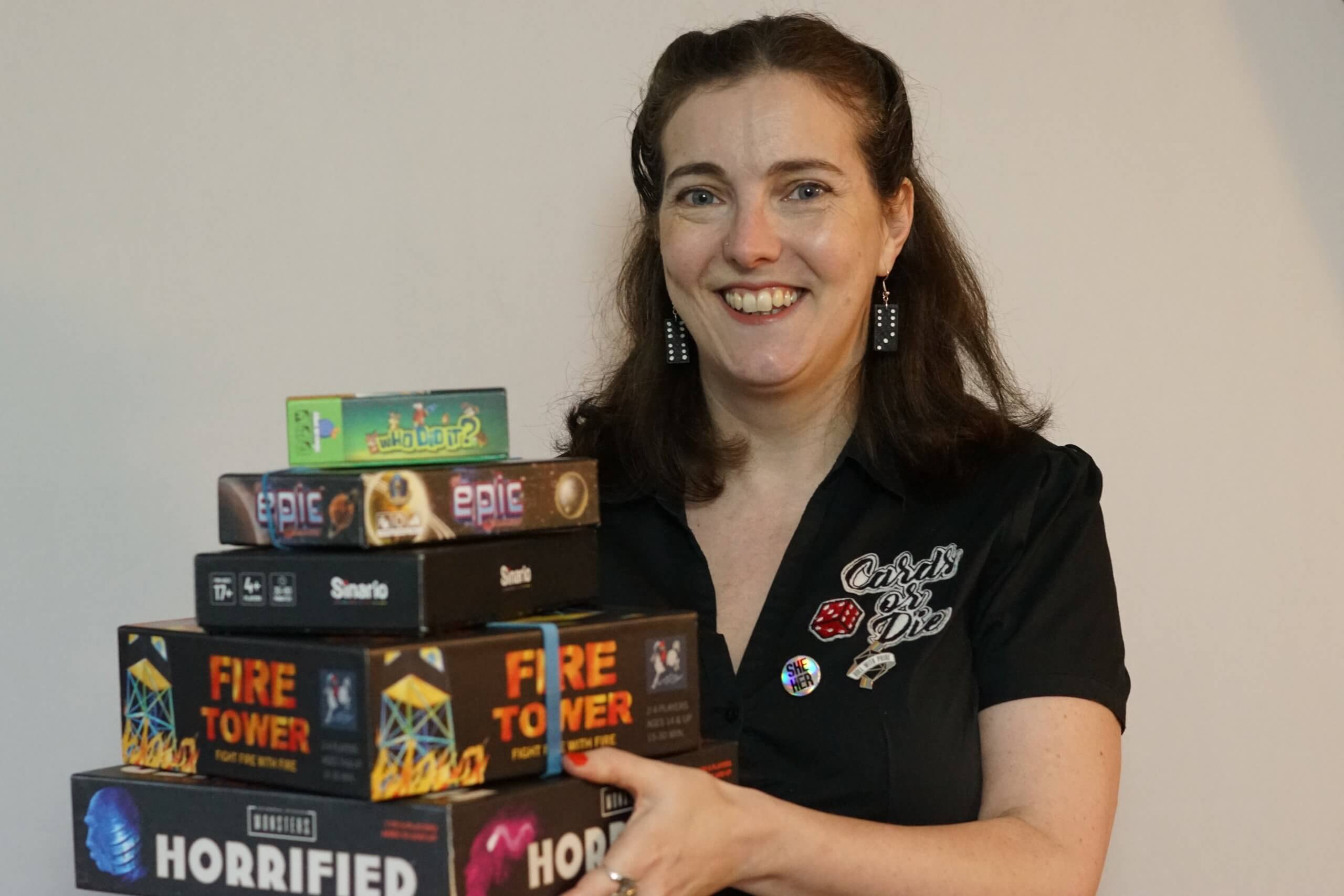Do you fondly remember Choose Your Own Adventure Books? Fighting Fantasy? I’m sure I even got one free with my weetabix in the 80s, and I loved it.
If these hold fond memories for you, then Forest of Fate is the perfect game for you. Passionate about Role Playing Games and want to introduce non-gamers to your passion? -look no further. Love a gripping story and fabulous artwork in your game – you need this in your life. Don’t value your life, your face or your vital organs? – this was made especially for you.
The first thing I loved about this game was the artwork. It is a visually stunning game and the fact that the cards match the background on the relevant computer page is a brilliant detail. But it’s not just about looks; so far I have introduced it to children from 7 to 13 and several adults too. All of whom have thoroughly enjoyed it.
In Forest of Fate, you navigate a random series of encounters in order to complete your quest, hopefully returning home to brag of your conquests. Upon revealing an encounter, your intrepid band of ne’erdowells must decide which of you is best placed to tackle the challenge. Wow the wolves with your dazzling style; beguile the ferryman or use epic force to disarm the sword expert.
Successful challenges are rewarded with items or artefacts that can support you on your perilous journey through the dark forest. But fail and the penalties are high (and honestly – quite gruesome – this is not a quest for the faint-hearted). A tree branch through the abdomen, brutally beaten by a band of thieves or breaking your ankle in dense fog are some of the fates that await the careless. In other words, you sustain heavy life point losses. You can lose 6 points in one go if the Forest Gods are not on your side.
All the expected skills are there to choose from: wits, care, speed, force and guile. And the addition of style as a skill is very enjoyable – by using style, you can “dazzle, seduce or bemuse”.
There are six characters to choose between. The ambiguous images, coupled with the necessary use of second person in the story telling means that anyone can be anyone. We don’t have to endure the all too common tokenism with race or gender. Each character has 4 of the skills above, each rated either great or good. Plus, each has 2 special abilities, but you can only use one on each quest. These abilities come with a cost but benefit the team as a whole – for instance the ability to revive someone or the ability to rewind time and repeat an event. (Hopefully learning from your failure and choosing a skill that doesn’t leave you hanging upside down from a vine.)
The ability cards also enable you to track your life points and when you flip them, the reverse side has another special ability that can be used by your ghost to spitefully try to thwart the remaining group members.
Once your quest is chosen and the appropriate number of encounters laid out, face down, in the winding path of your choice, you are ready to embark on your journey.
You reveal the first encounter and work together to decide which brave soul is best equipped to go forward and resolve this event. There are four possible entry points to each encounter, each with four possible skills you could use. But, as you venture deeper into the forest the decisions become less straightforward – you need to weigh up not just who has the skills but also which of you is still strong enough. Choose wrong and one of you will die, possibly transforming into a shade who will hex your party. What use is epic strength when tripping over an exposed tree root could kill you?
Once you have agreed upon your action, you use the website or a printed version of the story book, find the number shown to reveal the next part of the story… and your fate…
You could lose life points, gain artefacts or items which you can cash in to help you on your quest or hang on to as treasure to sweeten your victory. Additionally your status may change – becoming sluggish will slow you down whilst becoming composed will improve your levels of guile.
You wend your way on your chosen path, meeting each new challenge with a combination of skills and abilities, hopefully all surviving, if a little bruised, to tell the tale!
Each game begins with a quest: the Quest can be randomly selected or you can choose carefully to increase your chances. Each quest comes with one artefact or item and some make success easier than others. For instance, the Ancient Amulet allows you to restore up to 3 health for each of the group. Equally, you can increase the difficulty – start at The Dragon’s Mouth – not only are the steps a challenge for anyone with dancers’ knees but you gain a random item to start. And, if your random item choosing is anything like my dice rolling, then you’re screwed.
As I was travelling to St Ives I found a game with
Each encounter had 4 sides
Each skill had 4 possible levels of competency from Fair to Epic
There were 12 possible statuses that affect your skills
Each character had 2 abilities to choose from
Each dead character could choose to invoke a ghostly ability or not
Quests, skills, cats, kits … I have literally no idea how many adventurers were travelling to Saint Ives but I do know this. There are an epic number of variants, and I can’t see how I could ever exhaust this game.
